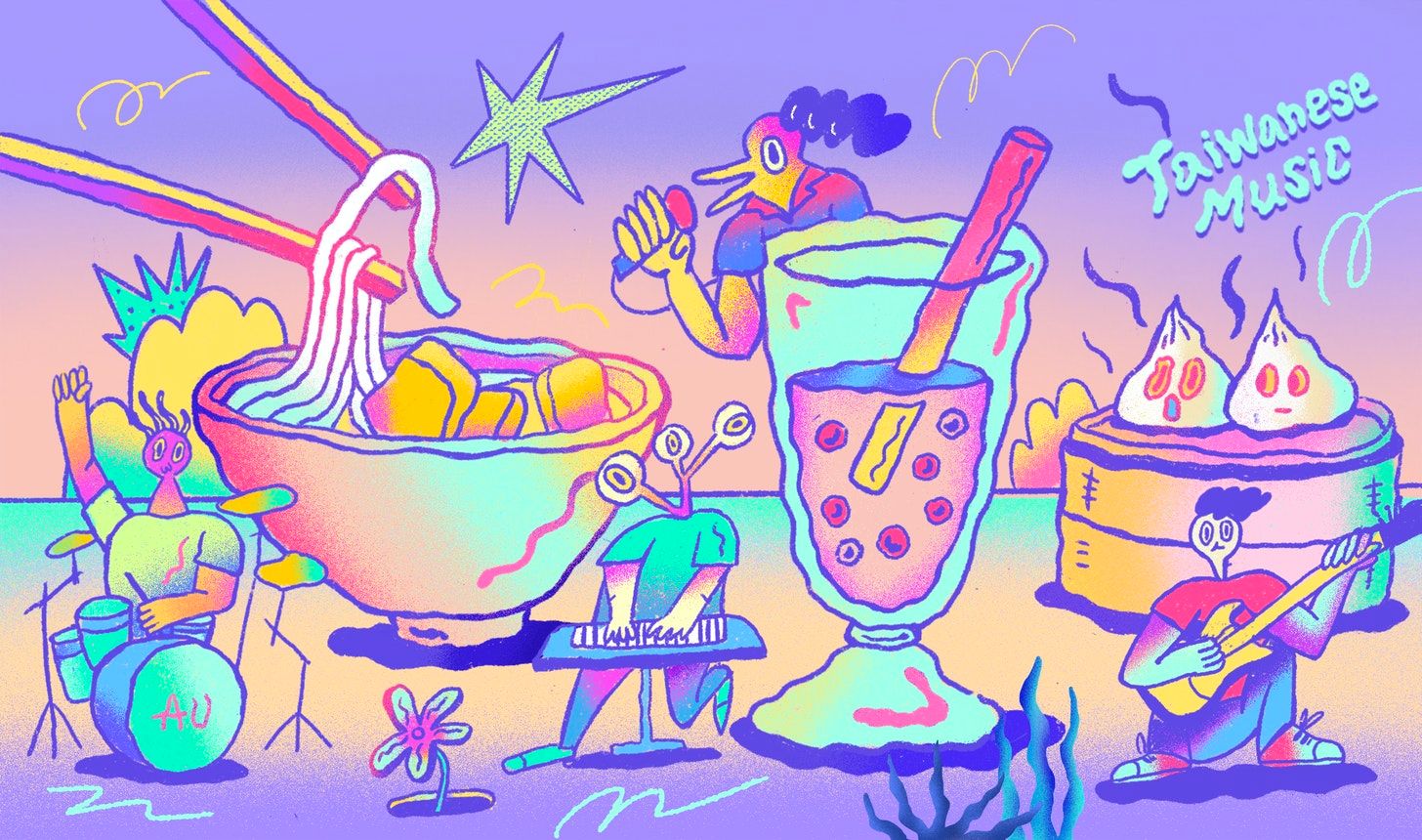This dispatch is the entirety of S02 Episode 1. Cover illustration by AU Chang.
In the house this week: Brian, Chen-Yu, Miaoju, Lev, Nathanel, AU, Simon, Krish, Tianyu, Yan, and Ting.
Krish: This episode is about Taiwan.
Specifically, Taiwan’s influence on Chinese music. How it’s shaped Chinese pop culture even as its origins are deliberately obscured or denied.
For decades, Taiwan⇔China has been one of the oddest musical circuits in the world. In the 1970s, there was the “ethereal presence” of singer Teresa Teng (鄧麗君), whose songs singularly captured the transformation of everyday life in post-Mao China. She is an enduring icon, her presence and influence so ubiquitous that the writer Andrew F. Jones argues Teng was “not so much a historical personage [but a] particular acoustic effect...and even a kind of domestic appliance.”
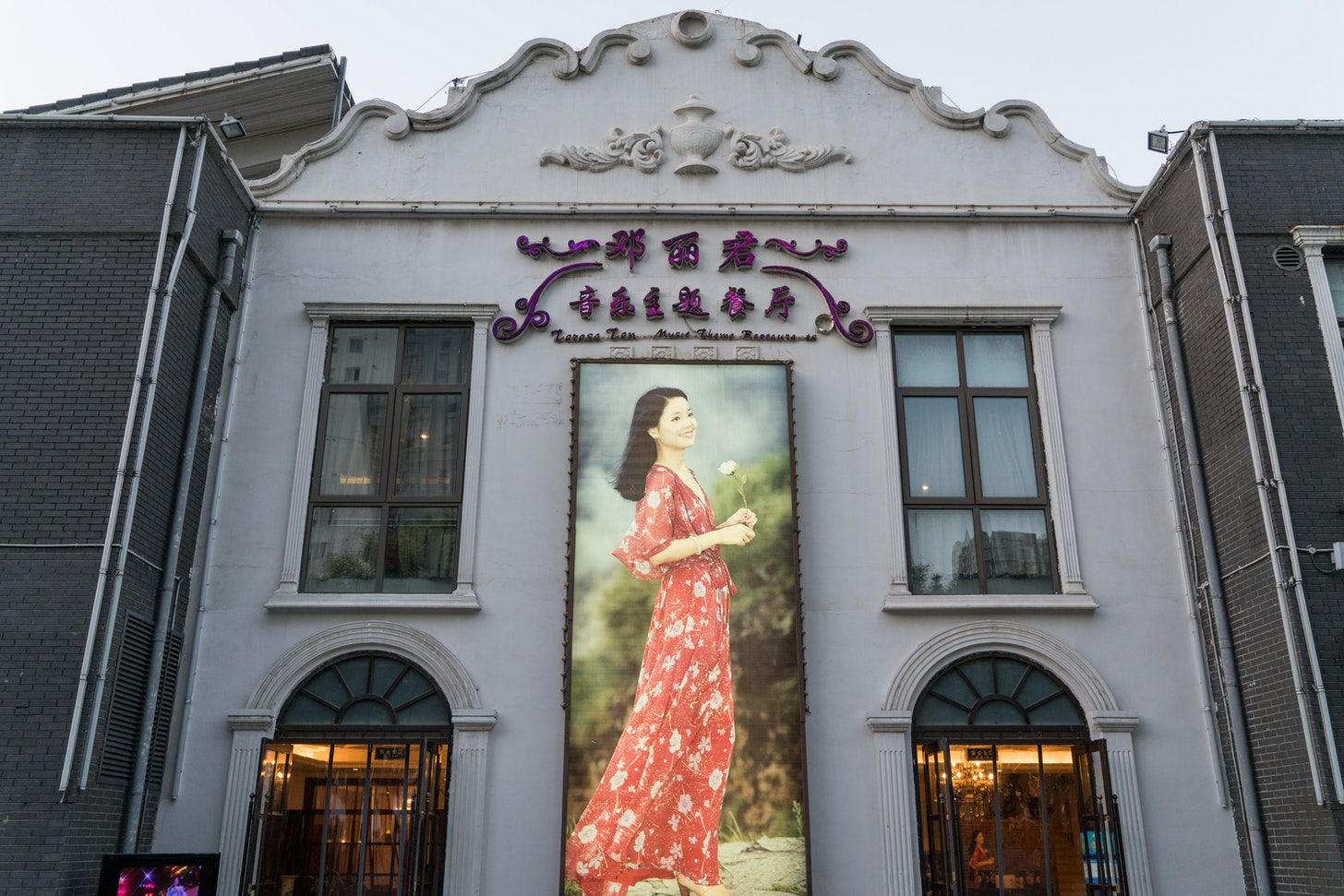
Throughout the 1980s, 90s, and 2000s, Taiwanese pop dominated airwaves and TV screens, blasted everywhere from taxi radios to college dorms. They constitute much of karaoke canon. In the last half-decade, Taiwanese indie bands like No Party for Cao Dong (草東沒有派對), deca joins, or Sunset Rollercoaster (落日飛車) seem to take turns to headline every Chinese music festival.
Their dominance has not, however, insulated Taiwanese culture from the...rollercoaster of broader political headwinds. Especially now, when China’s idols and films are the top show in town and a poisoned online environment is deployed as a paranoid border guard.
This big question we’re asking is, “how is Taiwanese music thought about (and encountered) in China today?”
Simon: Keeping our focus mostly on music more in the realm of Chaoyang Trap’s interests, “indie rock” and “underground club music” (with an awareness that both genres are sometimes big business), how are Taiwanese artists perceived in China, and how do they think about working in China?
Unexpectedly, the Covid-19 pandemic hasn’t caused cross-straits touring to totally peter out: bands have put themselves through quarantine to participate in reality shows like The Big Band (乐队的夏天), or embark on their own headline tours.
On the one hand, we could say this is great. People are overcoming would-be political barriers to share music.
On the other hand, if non-mainstream music is meant to carry some sort of alternative message, and if by entering the Chinese market Taiwanese artists who tilt “Green” (i.e., generally supporting a DPP-abetted status quo or independence) must remain silent, is meaningful exchange or communication still happening here? Is this a soft power win for hipster Taiwan? Or does the fact that this music is allowed into China normalize for fans here that the place it comes from is part of a cultural-political space that they can claim ownership of?
Krish: There is a kernel of truth to every part of this either/or question, and our one weird trick here is to treat choice as polarity—reject “either/or”, embrace “yes/no.”
Is this meaningful exchange that takes us forward, or normalization of a cursed status quo? Yes.
Simon: As Krish pitched the idea of Chaoyang Trap amongst friends last year, one thing that made it appeal to me was noticing the disconnect between cultural products in China that certain media outlets tell you to care about (i.e., rappers that support the police), and things that are actually worth caring about. There’s a wealth of interesting cultural activity (i.e. the subject of this episode) that still feels like it hasn’t been properly examined or critiqued in English.
If you were introduced for the first time to the “Chinese music scene” in 2021 without much context, you might be surprised to discover that many of the bands that seem to have something to say, or simply are operating at a slightly more professional level…are actually Taiwanese. How come? In my opinion this question alone makes our topic for this episode worth discussing.
Krish: We invited a dream team of contributors to take us through this. Brian Hioe is a writer, DJ, and music journalist in Taipei. Dr. Chen-Yu Lin is an academic and music industry professional who studies the Chinese audience. Miaoju Jian has been researching the cross-straits circulation of underground music for more than a decade. Lev Nachman, now at Harvard, has run @taiwansongaday for many years, and Nathanel Amar keeps the internet’s best archive of sinophone punk rock history.
A note on terminology:
For the purposes of this discussion, we use “Taiwan” to refer to the island of Taiwan (plus some other islands) and the Republic of China. We use “China” or “PRC” to refer to the People’s Republic of China or mainland China. Names of bands and musicians from Taiwan are rendered in traditional Chinese characters, while those from China are in simplified.
Between ROC and a Hard Place
By Brian Hioe, Chen-Yu Lin, Lev Nachman, Miaoju Jian, Nathanel Amar, and Simon Frank
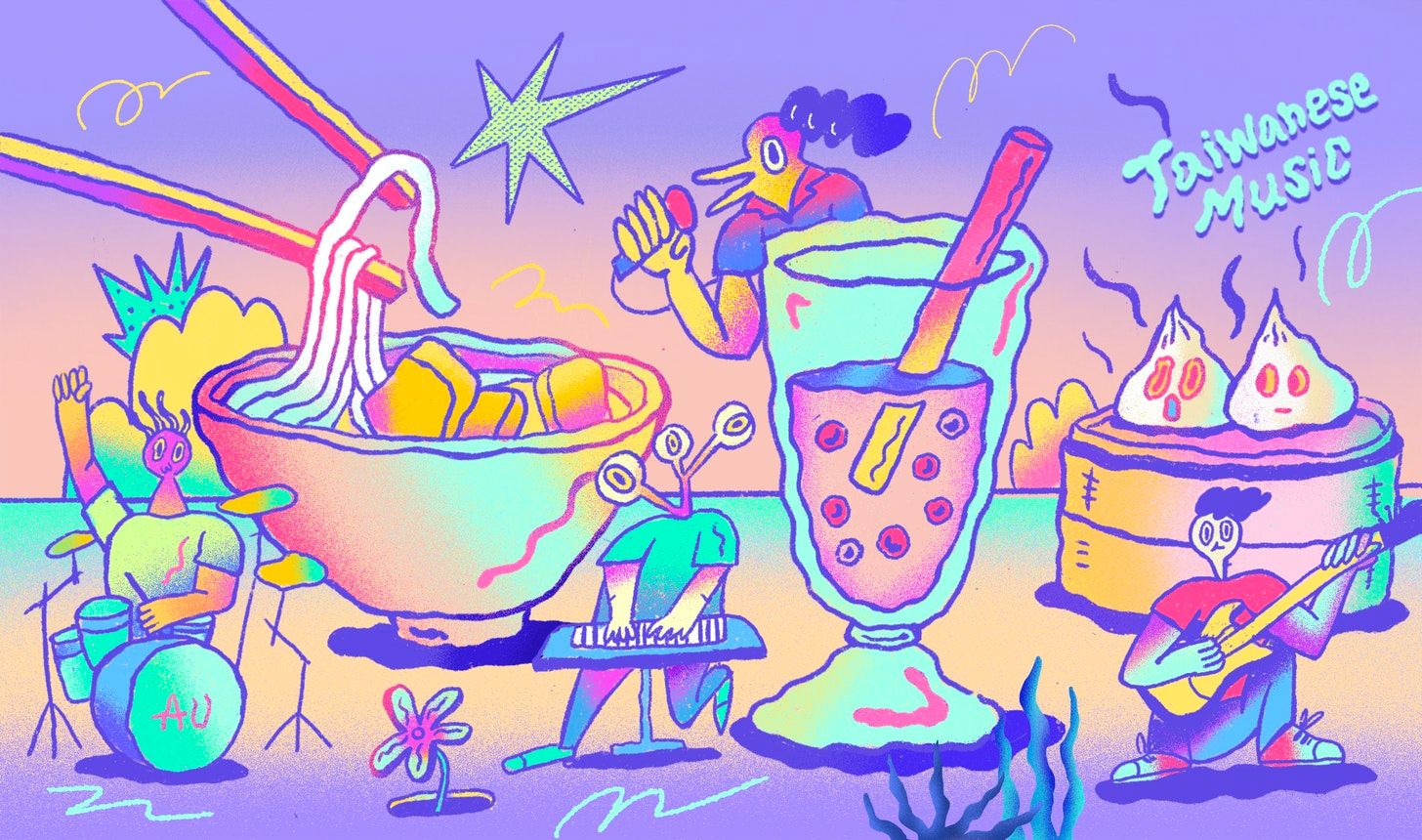
Simon: I got the idea for this episode singing karaoke with my colleagues in the spring of 2018. I’m not exactly joking: after a couple of months working a new job in Beijing, I went to a KTV parlor with my co-workers, and was a little shocked to see people who I knew from an environment where emotional vulnerability was generally frowned upon belting out tear-jerking ballads. And if they weren’t singing something by Faye Wong, it was probably an old Taiwanese song. While these musical choices might have reflected more about the group of people I was with than wider trends, the way these songs were being used as a conduit for hidden feelings did bring to mind something that I embarrassingly hadn’t given much thought to before—namely, how is Taiwan thought about in China, not as a big political topic, but in all the ways that don’t look political but which are in fact deeply ideological.
As a music video flashed across the screen, showing a small bar-cafe café that I could have sworn was somewhere in an alley near Shida Night Market, I wondered if Taiwan was perceived as a utopian “island of affect”—a kind of hyper-California that provides pop songs, actors, and models to the mainland, idyllically preserved from the hassles of daily life.
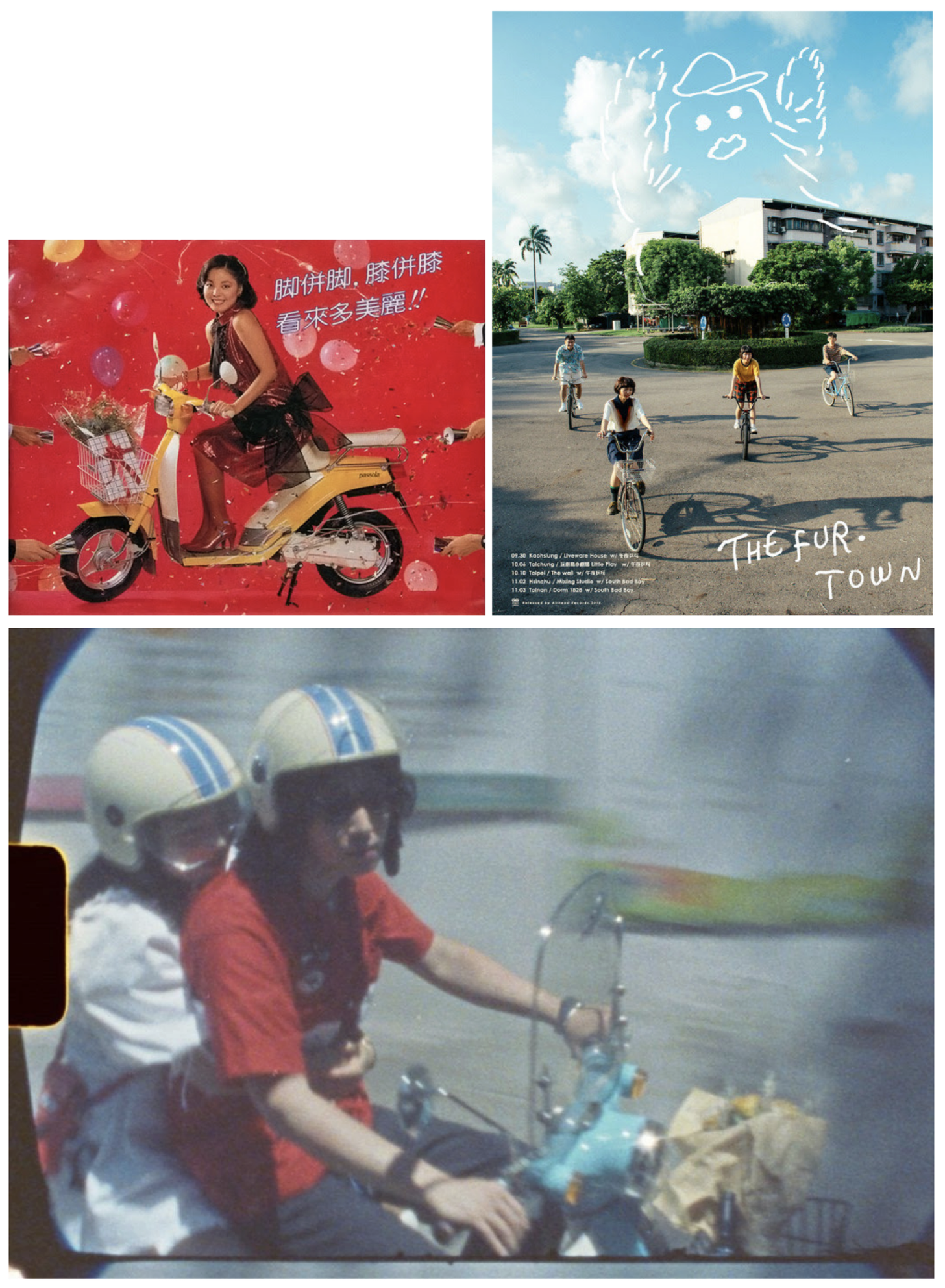
Nathanel: I think the first time I realized the importance of Taiwan music in China was 2012, when I was drinking in a Wuhan punk bar. I went outside for a smoke and there were 4 older guys sitting down, around 40-50 years old, with a lot of beers and whisky bottles on the table. Their presence was quite unusual—not the typical demographic of a punk bar. They were in fact the 老大 (lǎodà) of the neighborhood, the guys you have to pay respect to and give free alcohol if you don’t want any problems with your business. Some of them were ex-policemen. They were really nice and invited me to drink with them. As we were beginning to get drunk, they decided that we had to sing a song together, and immediately began to sing Teresa Teng’s “月亮代表我的心” (“The Moon Represents My Heart”). Why would these guys instinctively choose to sing this song, even though we were just talking about their life during Maoism?
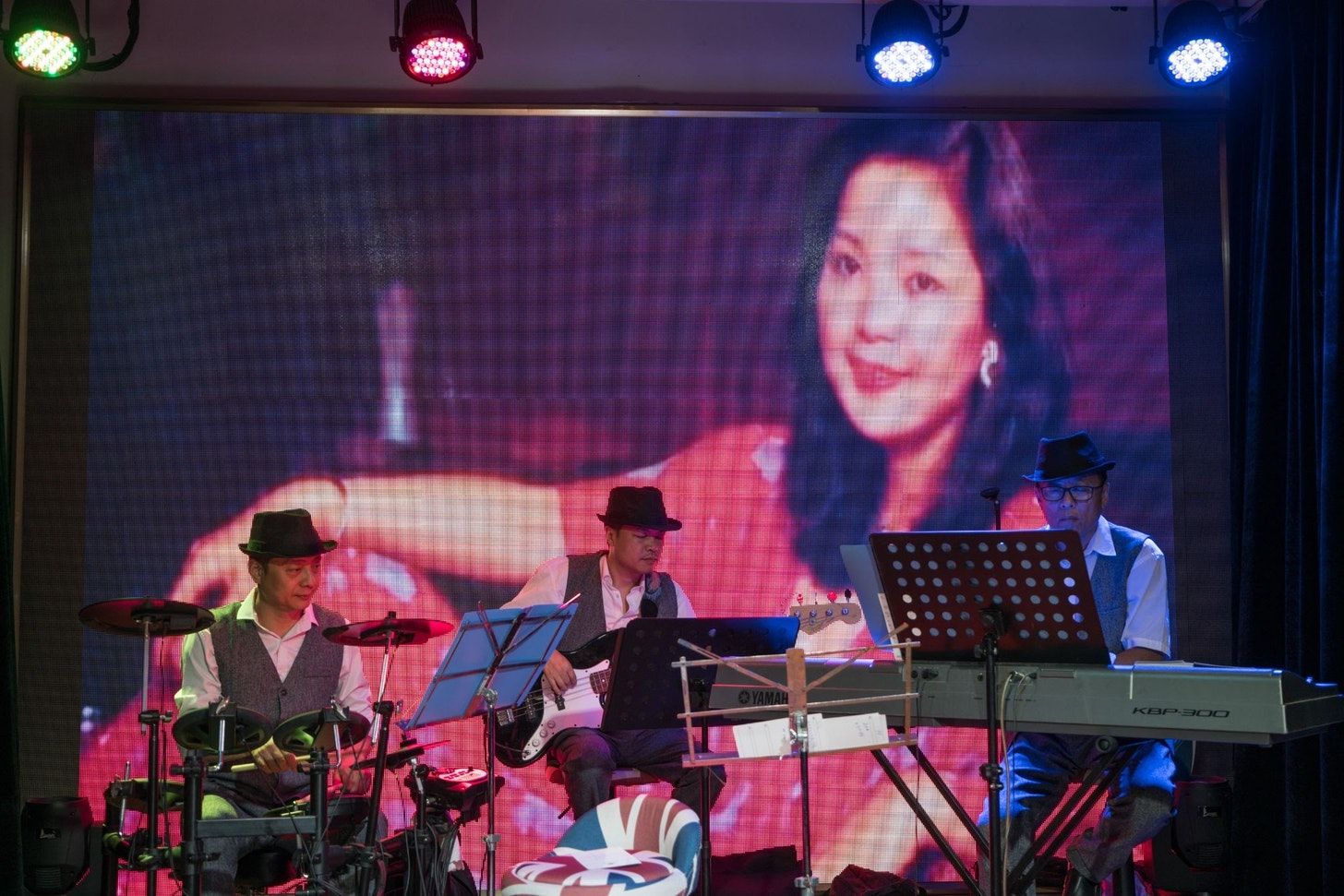
Miaoju: I went to China for the first time in 2008 to research the reality show Super Girl (超级女声). Since 2012, I have traveled to Beijing, Guangzhou, Shanghai, and other cities to conduct my long-term research on the indie music scene. What impressed me at the time was always hearing familiar Taiwanese pop songs on taxi radios, whether it was Sarah Chen (陳淑樺), Wakin Chau (周華健), or Jay Chou (周杰倫). Be it the host of a talk show or the driver who sang along, they were all intensely familiar with these singers, almost like they were close friends. But to me, these were old songs. Some were from the 1980s, and others the early 2000s, yet they were mashed together into a single soundscape for people’s daily life. Being loved and cherished but through a kind of bizarre feeling.
At the same time, Mayday’s (五月天, “The Beatles of the Chinese World'') first concert in Beijing’s Bird’s Nest stadium sold out in seconds, and some young urban professionals did follow popular rock and alternative performers like Cheer Chen (陳綺貞), Deserts Chang (張懸), and Sodagreen (蘇打綠). But Taiwanese indie bands were then barely known to the public, except maybe for Skip Skip Ben Ben, who lived and played music in Beijing, and Hakka singer-songwriter Lin Shengxiang (林生祥) who had been touring China within the folk scene since 2008.
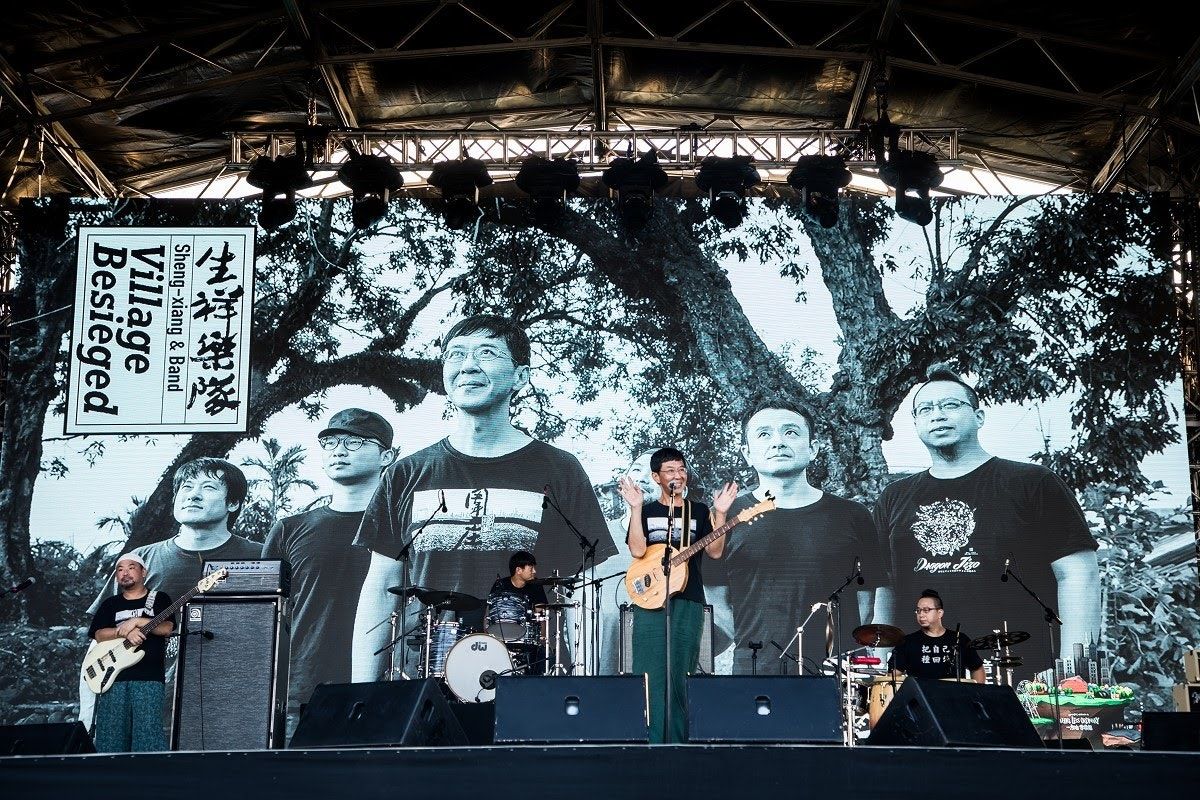
When I returned to Beijing in 2015, the situation was different. All my musician friends were very interested in indie bands from Taiwan. Besides Skip Skip Ben Ben, who had drummed for Carsick Cars in the early 2010s, Forests (森林) came to Beijing to play at XP in 2014. When I visited again in 2018, friends in Beijing were already discussing why so many Taiwanese bands had been touring there.Three names in particular, big in Taiwan already, were huge in China: No Party for Cao Dong (草東沒有派對), deca joins, and Sunset Rollercoaster (落日飛車).
For me, there are three types of musical exchange: 1) Mainstream Taiwanese pop music which is listened to by the public; 2) Taiwanese indie music mainly listened to by students and urban young adults; 3) Avant-garde, noise, and experimental music listened to by niche, underground music fans. My study mainly focuses on the second category.
I. History/Precedents
Simon: So… how did we get here? What created the demand for Taiwanese bands in China? Krish and I have joked that bands in Taiwan are generally better than those in China at a similar career level because they actually have a chance to develop—there’s less hype from the get-go, a slower pace of life even in big cities (which leaves time to practice and write songs), and a music scene with low stakes but decent infrastructure. So might it actually have something to do with Taiwan being more “Californian”?
Brian: I wonder if that’s precisely it—the demand for Taiwanese bands in China is rooted in Taiwan as thought of as signifying a sort of more laid-back pace or life or a different set of values.
Nathanel: I think Brian is right, there is something like an unheimliche feeling—a strange familiarity—in the demand of Taiwanese bands in China. We should also historicize this particular demand, from Teresa Teng to COM’Z. Someone like Hou Dejian (侯德健) was the symbol of a pan-Chinese identity, something that was later reappropriated by Wang Leehom with his own reinterpretation of the song 龍的傳人 (Descendents of the Dragon).
(Editor’s note: Hou Dejian’s version of ‘Descendents of the Dragon.’ Written as an anthem for Taiwan, then popularized as a pan-Chinese call for unification, then recast (by the lyricist) as an anthem in support of the students at Tiananmen Square, and then subsequently used by both mainland and Taiwan broadcasters as a ‘patriotic’ song.)
Chen-yu: I agree—I think it is helpful for us not to see Taiwanese bands touring in China as a series of specific, stand-alone events, but rather an extension of the long history of Taiwanese acts being heard in the China market.
In many ways, Taiwanese pop and indie soundtracked the drastic changes in Chinese society for the post-1990s generation. Many of my interviewees told me they had to “adapt” to pop music from Taiwan—namely S.H.E., Jay Chou and Mayday—when they were first exposed to it, as they were too different from the music their parents listened to.
Taiwanese indie music, I think, exemplifies the construction of “cultural imaginations” among music audiences. There have been many discussions about how the twee xiao qingxin (小清新) aesthetics left a strong impression on the PRC’s music audience; labels such as ‘bourgeoisie’ (小資) and ‘cynical’ (厭世), used to describe quite a few Taiwanese acts, are descriptors of lifestyles too. For a China audience, Taiwanese music provides a kind of “organizing material” of subjectivity (as DeNora puts it), and I think the demand for Taiwanese music— past and present—is driven by it.
I also agree with Krish and Simon that there has been an advantage for Taiwanese musicians as the infrastructure here has been developed earlier and better. Even today, bands can apply with the Ministry of Culture for governmental subsidies to record their albums (something unthinkable on the Chinese side). These schemes specifically encouraged bands, not DJs or Hip-Hop artists.
Miaoju: I think the development of China's huge music festival market, especially the “fountain explosion” (井噴) era since 2010, was a major reason. Taiwanese bands gave capable live performances with good energy, and appealed to the core youth demographic. Not only did international acts increase the attractiveness and diversity of a lineup, the ambiguous identity of Taiwan artists (simultaneously local and foreign) gave festivals the best of both worlds. In addition to well-known female artists such as Joanna Wang (王若琳) and Waa Wei (魏如萱), the performance opportunities and demand for Taiwan indie bands greatly increased as well.
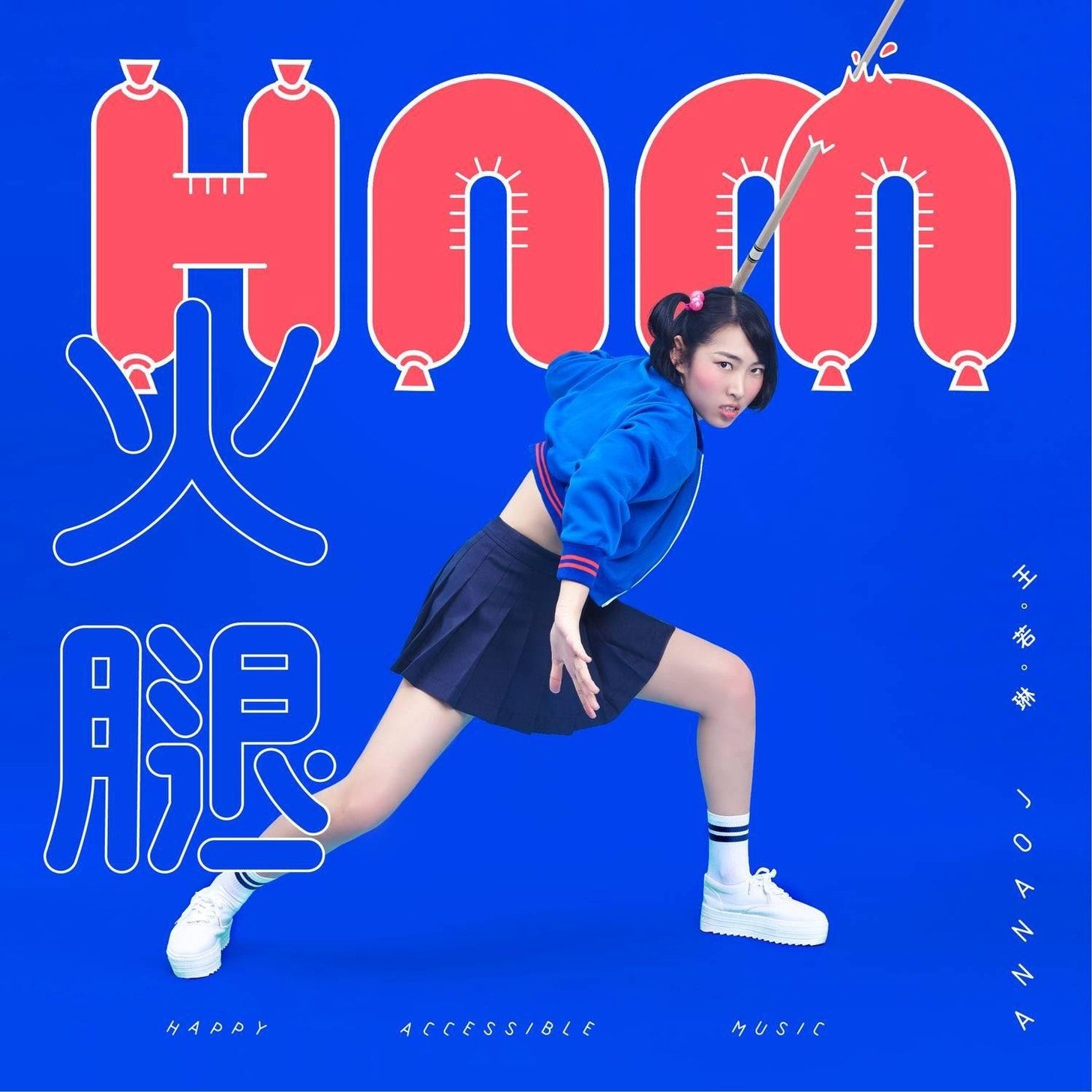
Krish: I worked for a Shanghai music festival from 2015-19, and can second this strongly. Taiwanese bands were easier to process visas for, and sold more tickets than, their indie counterparts from Europe or the US. They were also, on balance, better headliners, more used to playing on big festival stages. They were, in most cases, used to dealing with non-standard equipment or improvised technical set-ups. The ambiguity of their identity (“Chinese-ish”) also smoothed over concerns of “excessive foreignness” with local police and culture bureaus.
Miaoju: The diversity of music festivals, from independent and underground to mainstream and genre-focused, dovetailed with the rise of talent shows, where Taiwan bands found opportunities too. The two seasons of “The Big Band” (乐队的夏天) in 2019 and 2020 were key for participating Taiwanese bands, with all of them now in high demand for bookings, tours, and festival slots.
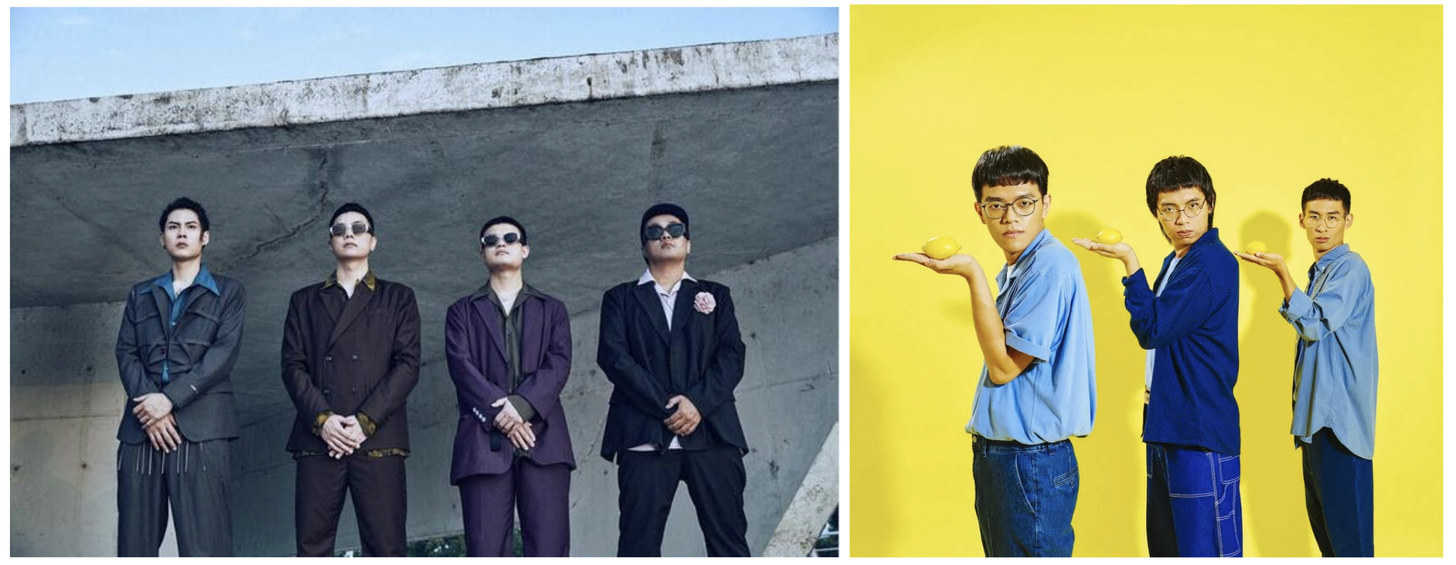
Nathanel: Now with The Chairs (椅子樂團) and COM’Z (康姆士)—two of the Taiwanese bands in the last “The Big Band” season—I feel they sell the idea of the “laid-back pace of life” that Brian is talking about. You can picture them on their scooter doing their 環島 (huandao, a “circuit” around the island) when you listen to their music—at least it’s my own feeling (and as Su Rui 蘇芮 taught us, we should “go with our feelings”). Is there something like a 小幸福 kind of music that people are attracted to in China?
Krish: Yeah, this is a really fascinating question. I wonder what makes their particular brand of laid-back 休闲 feel "realer" than, say, the self-proclaimed “leisure pop” (休闲流行) of Fuzhou band The 尺口MP? Andrew F Jones refers to this through the idea of “timbre”—why do certain sounds or genres “represent” a historical moment? Do particular eras really have a signature sound?
This is a question more than a comment, but if we accept that the timbre of an era is a reality we can grasp as it unfolds, could Taiwanese indie be, in a sense, a sound that anticipated China’s “involuted generation?”
Simon: If Teresa Teng soundtracked the Chinese 80s, and now Taiwanese bands are a frequent sight on stages and screens in China, what happened in between? On the surface, there’s a big gap between Teng’s ballads and today’s bands, who, spiritually and in some cases literally, emerged from underground scenes, even if their music is fairly polished.
Yan: As someone born in the 90s in Beijing, I remember music from Taiwan in different mediums—OG boy band Xiao Hu Dui (小虎队) in 1992’s CCTV Spring Festival Gala, Mavis Fan’s (范晓萱 ) “健康歌” (“Song of Health”) as background music in McDonald’s, Jay Chou’s first three albums on tape and subsequently on CDs; many others as ambient music over dinner (there’s a 6:40pm pop music program on BTV (Beijing TV Station) that I always watched while eating), or on radio when I did my homework at night. At the time, Taiwan pop music was mainstream, you didn’t have to go out of your way to listen to it. Compared to my father’s generation who had to listen to Teresa Teng in secret, it was a completely different experience.
Nathanel: I love the story of Mayday’s (五月天) first concert in China, which in turn reminds me of Beyond’s first concert in China. It’s an interesting story. Sorry if I’m making weird connections but I think these examples show how music circulated between China, Taiwan, and Hong Kong from the 1980s on.
So I’ll start with the Hong Kong rock band Beyond. They toured China in 1988. At the time they were quite unknown there, and basically there was no audience for Cantonese rock in Beijing. The concert was a commercial failure, but more importantly it was also a missed encounter between Hong Kong and Beijing rock. Cui Jian (崔健) came to meet the band before the concert—he did not stay for their performance—but they couldn’t communicate. Beyond’s Mandarin was very poor at the time, and Gene Lau, their lyricist and interpreter for the tour, was not there. In his memoirs, Gene Lau remembers that “halfway through the concert, half the audience had left”, even as Beyond sang a Mandarin version of “Great Earth” (大地), written phonetically by Gene Lau, but also Cui Jian’s “Nothing to My Name” (一无所有) and even “The East is Red” (东方红)! A stark contrast with Beyond's second tour in China in 2003, at a packed-out Beijing Worker’s Stadium, two months after the end of the SARS outbreak in China and Hong Kong.
So, flash-forward to 2004, when Mayday was already a huge band in Taiwan but fairly unknown in China. At the time, people in Beijing confused the Taiwanese band with self-styled punk He Yong’s (何勇) first band, also named 五月天. Their Beijing concert was organized at Nameless Highland (Wuming gaodi 无名高地), an underground bar near the north side of the 4th Ring Road in Chaoyang, with the legendary punk-rockers Joyside. The entrance fee was 30 yuan (20 for students). People came for Joyside, and when Mayday took the stage, there were only about 30 people left. According to the legend, the audience booed Mayday, but after two songs, people began to pogo. This Taiwanese band had won the hearts of Beijing punk rockers—quite the achievement!
I also heard that, several years later, a member of Joyside ran into Mayday at the Hong Kong airport, but the Taiwanese band didn’t recognize him, or remember their concert. All this to say that there were/are some prejudices regarding Hong Kong and Taiwan bands in the underground Beijing communities, who sometimes think that “rock authenticity” is the sole property of Beijing. I remember reading the headlines of Beijing newspapers during Beyond’s 2003 concerts in China: “Hong Kong doesn’t have rock and roll, except for Beyond, Taiwan doesn’t have rock and roll, except for Lo Ta-yu (羅大佑).”
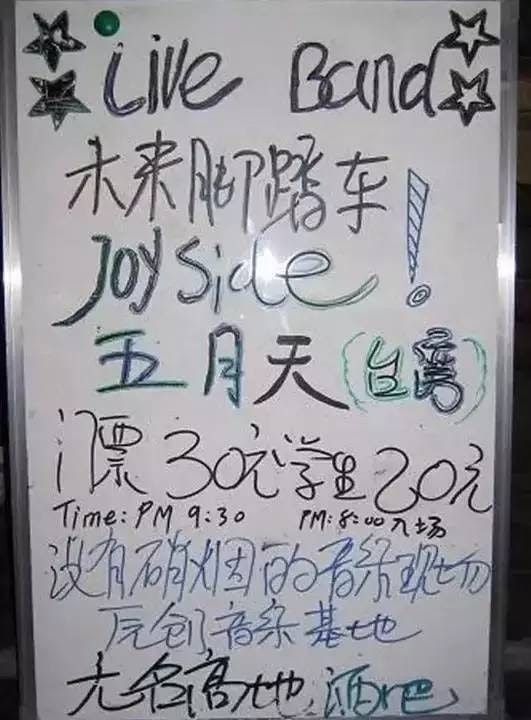
Simon: Wow, I haven’t thought about Nameless Highland in a while! Beijing’s claims to rock authenticity bring to mind the way these things are often gendered, with the stereotype that rough, masculine men from Beijing play “real rock,” whereas music from Hong Kong and Taiwan is feminized, lightweight, and “pop.” This offensive view might also be connected to why some Taiwanese indie is seen as an “aspirational product”—a way out of certain gender roles, an artifact of a gentler life? It’s also interesting that while there’s a degree of gender balance in the music we’ve been discussing, when I visualize a band being marketed through 乐夏 these days, it’s pretty much gonna be four guys with guitars.
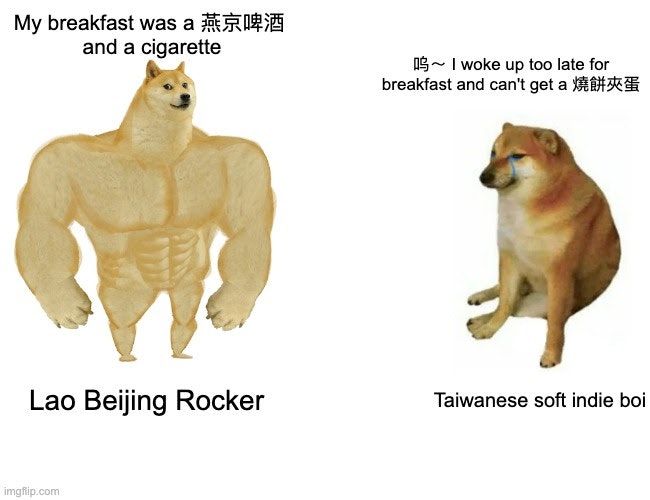
Nathanel: Yes there is something like an “excessive virility” of Beijing rock, a mythology constructed since the 1980s in opposition to the more "feminine" Cantopop, as De Kloet and Chow put it. Of course it doesn't mean that it's true, but these kinds of stereotypical discourses have real implications.
Partly as a result, I think there has been a kind of hesitancy to talk about the influence of Taiwanese (and Hongkongese) music, and particularly pop music, in China by music scholars. The focus on “Beijing rock” and the false debate on its “authenticity” have prevented us from seeing the historical complexity of Taiwan (and Hong Kong) influence, even in the “underground” music scene.
When I was interviewing participants of the scene in China, especially outside Beijing, musicians were telling me the importance of Taiwan and Hong Kong pop music in the early 1990s for them, consumed through pirated tapes and radio-waves. And at the same time, you can see the “Beijing tough-guys” spirit towards Taiwanese bands on The Big Band (乐队的夏天) for instance, people mocking the Taiwanese accent of COM’Z or Fool and Idiot (傻子與白癡) and the way they pronounce “哥们儿,” or the fact that the guys from The Chairs are not drinking alcohol or eating spicy food.
Krish: This mix of familiarity and othering is interesting. Given this history, and the many possible opportunities for a young Taiwanese band in China, at what point in a band's existence do they start thinking about the "China market?" What are the routes to building an audience?
I'm guessing it doesn't come naturally for Taiwan bands to have a Weibo account, so who (or what) is "translating" Taiwanese music to platforms inside the Great Firewall?
Miaoju: One important factor has been the opening of mainland students to study in Taiwan since 2011. Many exchange students who have come to Taiwan seem to have a special sense of intimacy towards the music scene, and were important sources of information.
For example, in 2015, there was a Weibo account called "Wanwan Choking Sound" (湾湾呛声), which was created by exchange student Lu Xiaowei (陆小维). At that time, 湾湾呛声 was followed by around 800 people and was dominated by her favorite Taiwanese indie bands Touming Magazine (透明雜誌) and Wayne’s So Sad (傷心欲絕). At the end of 2017, another Weibo account "Wanwan Independent Music News" (湾湾独立音乐速报) appeared, later renamed "Island Music News" (小岛音乐速报). It was followed by 10,000 people in the early days, and now that number has increased to 400,000. The music platform StreetVoice was influential too. It established a branch in Beijing in 2016, and ran Shanghai’s Simple Life Festival where many Taiwanese bands played.
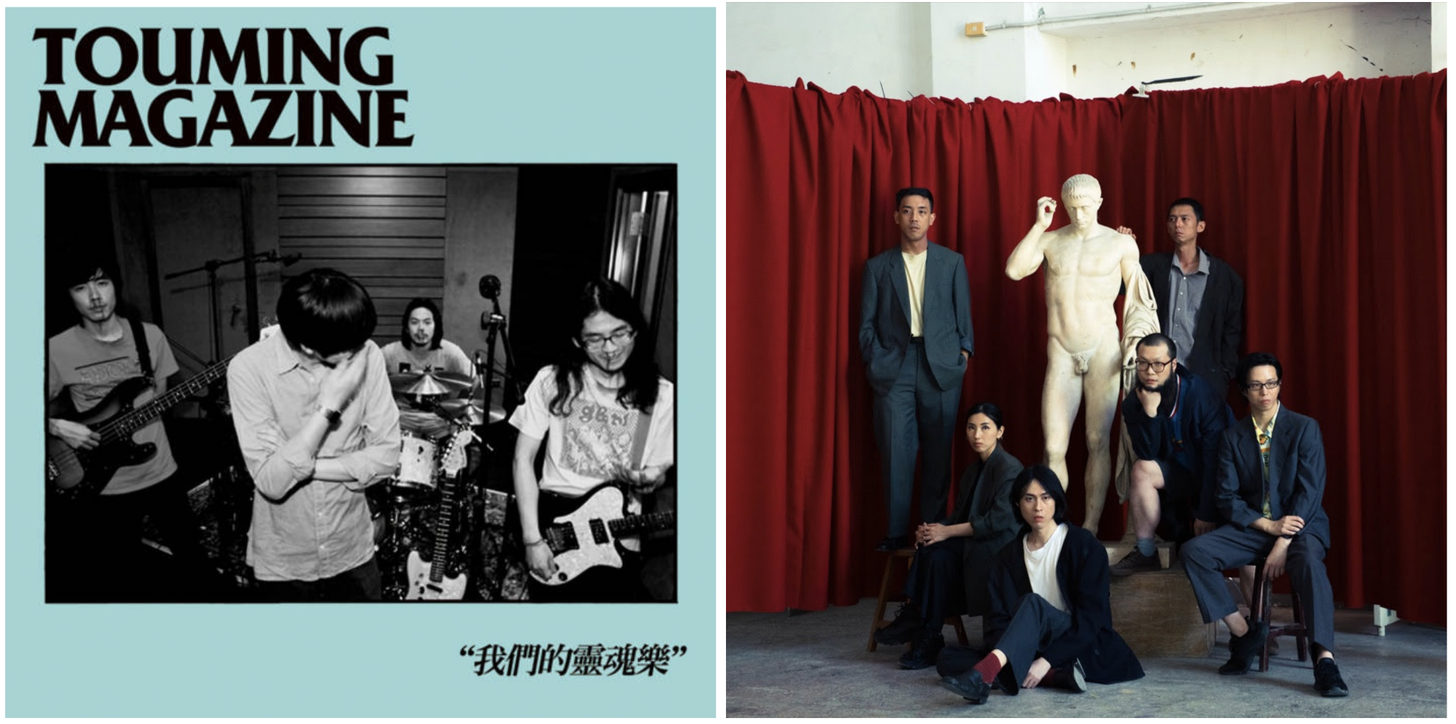
All the major music platforms in China, from the erstwhile Xiami Music (虾米音乐) to Douban and NetEase Cloud have special sections, tags, and playlists for Taiwanese indie bands. Of course, the rise of the “self media” era (自媒体) was also very important for introducing Taiwanese bands.
On the other hand, Taiwan's indie bands also have great personal interest to perform in China. In the early 2010s, you would tour with a little help from musician friends. But this was a relatively hard period of adaptation, from figuring out opaque and tricky application procedures to dealing with equipment quirks and technical issues in local Chinese music venues. Ticket sales were low, and hard to balance with the cost of traveling and flights.
In September 2015, Sunset Rollercoaster and Forests toured together for the first time in China, playing 11 shows including one in Hong Kong. After returning to Taiwan, frontman Kuo Kuo (國國) shared his experience on Facebook. He said that he lost money at the box office and only solid merchandise sales helped balance the cost.
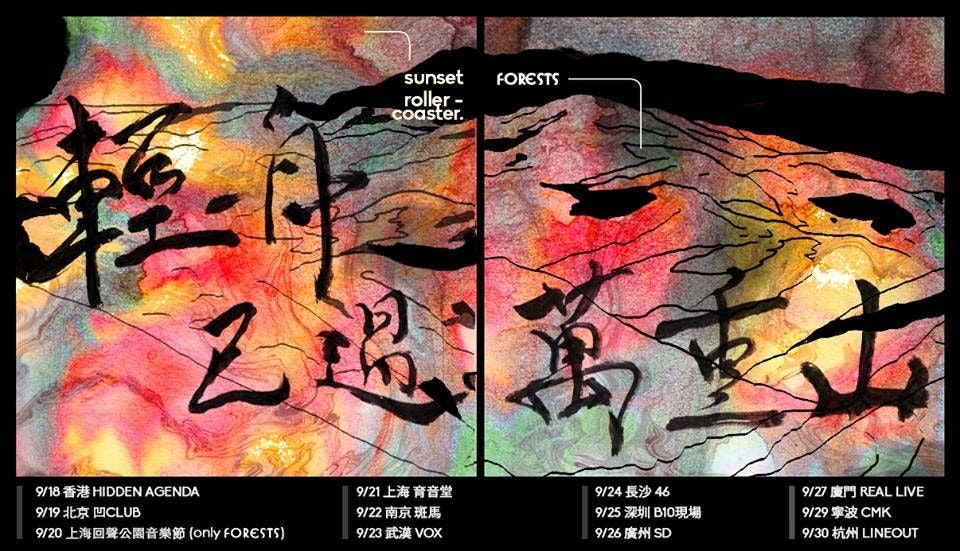
Krish: Fast forward to 2019, and Sunset Rollercoaster is playing a sold-out arena show at Beijing’s Workers’ Gymnasium to 5000+ people.
Miaoju: Almost all of Taiwan's indie bands had to pay such “tuition fees” to learn how to enter the touring market in China. In 2016, Touming Magazine was invited by Qiii Snacks, a DIY indie label in Guangzhou, to make their China tour debut. This kind of casual, DIY touring was much more normal back then, but after 2015, bands with more experience were able to find diverse (and more lucrative) ways to develop, like mixing and matching festival slots with solo tours and branding opportunities. Because Taiwan’s music tour market is too small, the chance to make it in China's cities was very attractive.
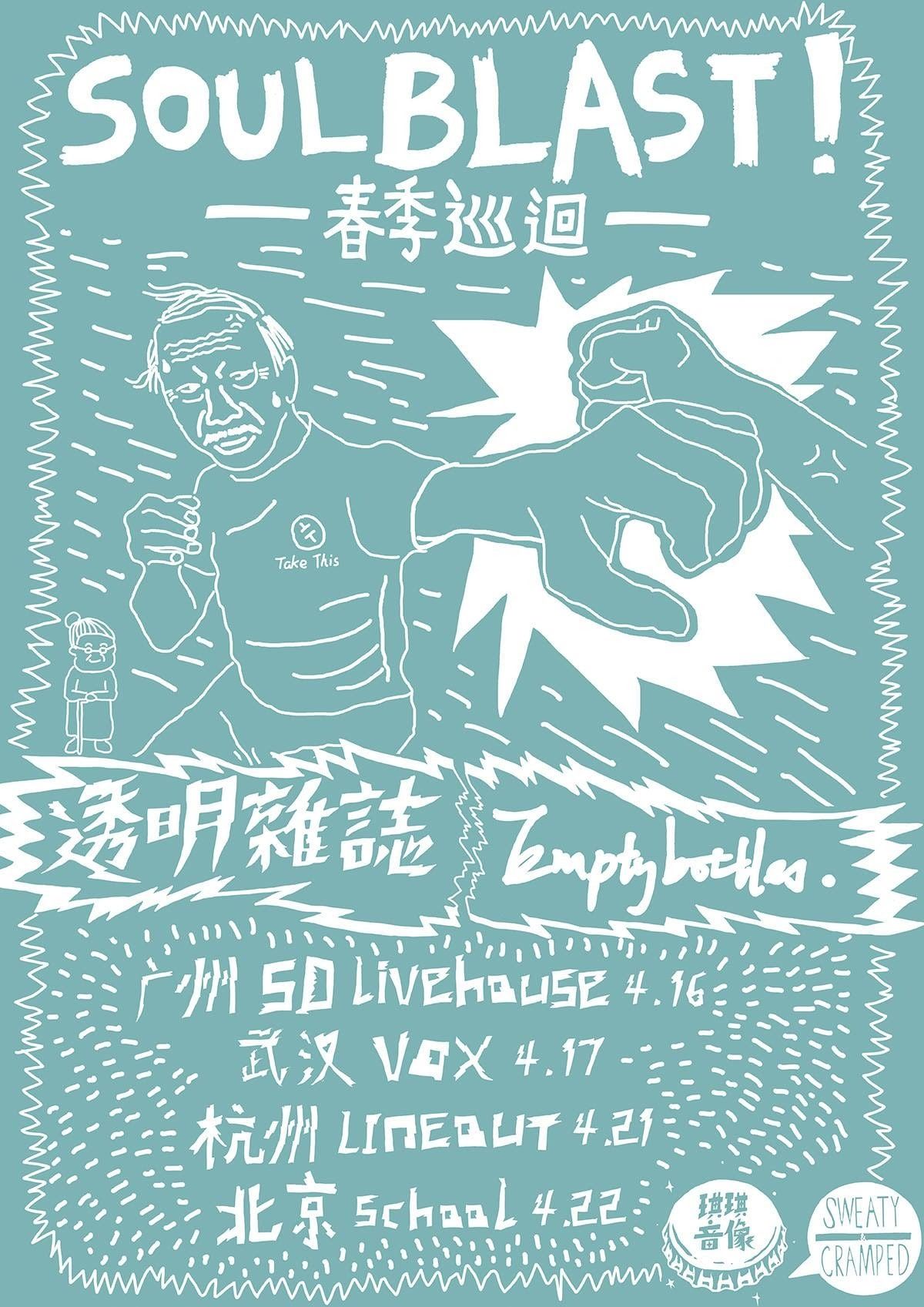
Chen-yu: “To navigate the PRC market or not” is a decision musicians would have to make at some point. Politically inclined metal bands like Chthonic (閃靈) have decided not to be on this route, but a lot of bands try to figure their ways out. Key here are bookers and promoters, who are able to help Taiwanese bands craft applications to obtain approval on the China side (報批). This process is indeed political, as the selection of acts with “appropriate attitudes toward China'' takes place here. While media platforms play an important role in sharing information to music-lovers and gig-goers in China, it is often still down to the artists and their teams to manage their own image in order to actually get in there. I have seen musicians’ PR teams pushing foreign press away when questions about cross-straits relations are asked. Most often than not, the artists have to carefully manage their social media profiles too. After the outbreak in Taiwan in May 2021, a few musicians went to China straight away for work opportunities. I think the balance between maintaining an appealing profile in Taiwan and in China is going to be more difficult to strike.
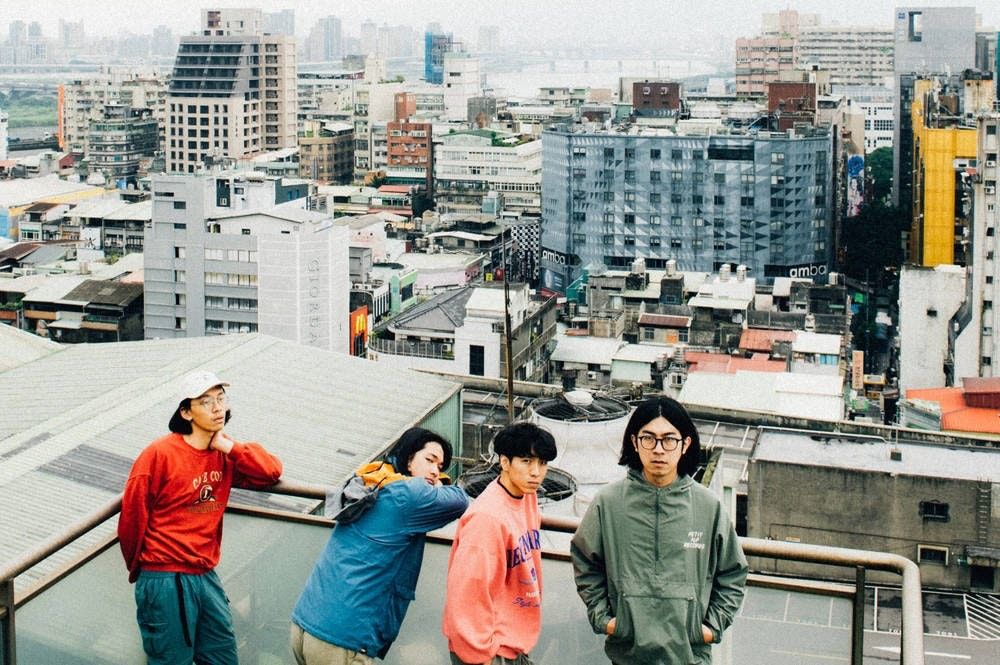
II. Models/Economies/Incentives
Simon: So, let’s talk about the internet. Is cross-straits touring an issue at all on the Taiwanese web? How do fans or other musicians react to hearing people have gone over to China to play some shows? Is there any pushback to more politically-active artists actively touring in China?
Krish: Related to this, it's clear that the atmosphere within the firewall has changed for the worse. You have stars like Jolin Tsai (蔡依林) and Dee Hsu (小S) being roasted on Weibo for even marginally "insinuating" Taiwan’s separate identity, not to mention overtly pro-China figures like Ouyang Nana (歐陽娜娜). Do similar controversies come up on the Taiwan web, where celebrities get questioned for pandering to the PRC market? Brian has written recently about how people assume being pro-KMT might shield them, but this isn’t really the case is it?
Lev: You used to hear indie bands in Taiwan say “Touring in China is for making money, touring in Japan is living the dream” and I think this really describes what most indie artists feelings towards touring in China are like—it’s not a political statement, it’s not an endorsement of anything, it really is just an opportunity to actually make money as a musician. A lot of mild envy or jealousy really stems from seeing bands get tour deals in China because it is a sign of having “made it” to some degree. But really the jealousy kicks in when bands tour in Japan. So much of Taiwan’s indie rock scene was heavily influenced by Japanese rock. Even today Japan’s music is put on a pedestal in Taiwan as being inherently better than anything Taiwanese bands cook up. I think it's interesting to think of how the flow of indie rock scenes made its way around East Asia—Japan’s scene influences Taiwan’s scene which goes on to influence China’s scene.
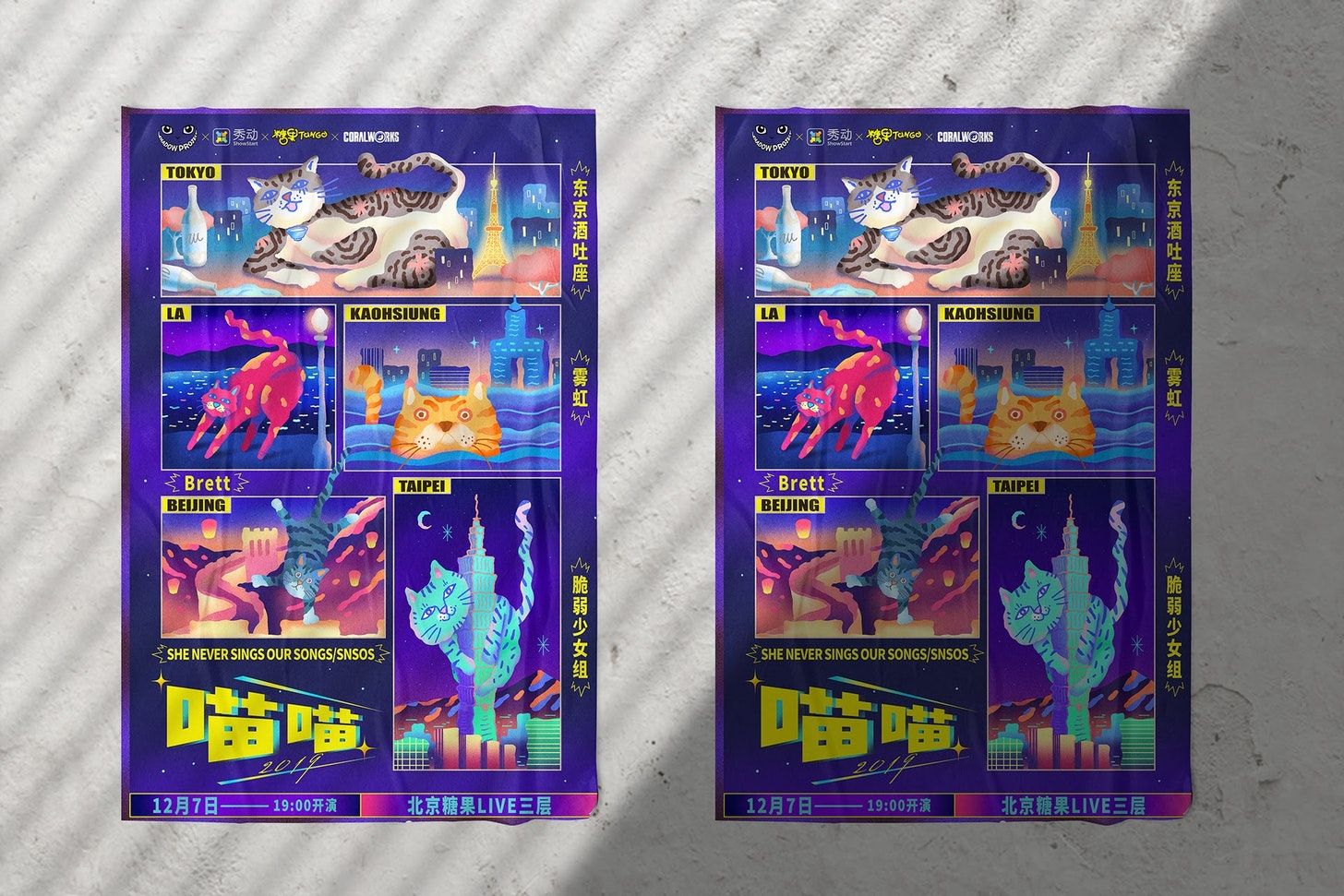
Then of course are the politically inclined bands who refuse to play in the PRC or have no way of playing in the PRC. Beyond the obvious bands like Chthonic or Fire EX. (滅火器), a lot of musicians, especially in the activist scene, take it as a point of pride to not tour in China. Again, they don’t judge bands that do but do consider it a badge of honor to be unable to tour in the PRC. The one exception may be some resentment towards No Party for Cao Dong because so many are still blown away that they’ve become so monumental in China, but it’s nothing serious. For bands who can’t tour in the PRC, their alternatives and financial possibilities become much slimmer but there are some cool connections they do make in either Japan or Hong Kong that make it possible. The Hong Kong route will no longer be a viable option because of the National Security Law, but once upon a time there was some interesting solidarity between Hong Kong and Taiwanese bands. Hong Kong bands like Seasons for Change used to tour with OBSESS from Taichung and would invite each other to Taiwan/Hong Kong respectively to do shows.
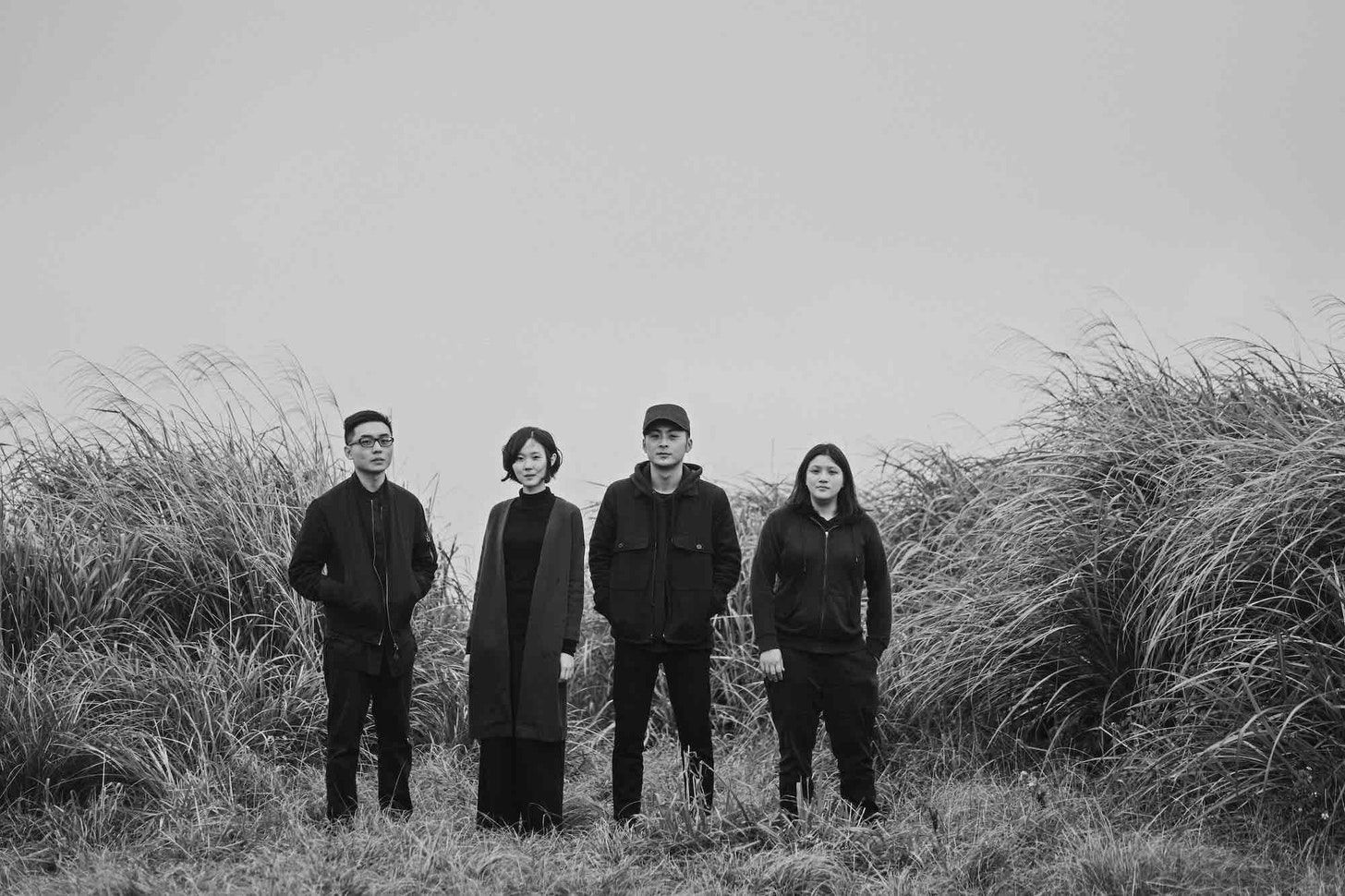
There is also something to be said about why some Taiwanese bands chose not to tour in the PRC—to some it’s a fear, but I also hear plenty of musicians see the need to self-censor or have to fight with a label about what they can or cannot say on Facebook as more of a frustration (or a hassle) than a fear. I have one friend who used to be infamous for long political rants, but once he signed to a label and toured the PRC he was told he had to stop posting about politics, otherwise the band wouldn’t be able to play. He jokes that it ended up saving him a lot of time on social media, but every election he gets frustrated for not being able to join in on the KMT hate.
Brian: In 2014, Mayday got flak for walking back support of the Sunflower Movement because of concerns how it would affect their ability to maintain a presence in the Chinese market. Sometimes bands or artists view going to China as a way to make a lot of money quickly, given low salaries in Taiwan, but I think there’s maybe a certain degree of allowance for bands being strategically quiet in some circumstances—it’s when bands are viewed as reversing course politically that they’re more often criticized.
I wonder if so far it just simply is that the indie scene hasn’t particularly been targeted in any way though, it’s always these more mainstream figures that come under scrutiny. That might change. No Party for Cao Dong is thought of as pro-independence, for example, but has still managed to tour China—maybe that’s because a lot of the pro-independence politics are expressed more in terms of sentiment rather than explicitly politically laying it out.
Krish: Fans also tend to overlook that No Party for Cao Dong wrote the closing theme for Devotion (還願), a Taiwanese indie game that got extremely banned in China. For an internet culture very devoted to teasing out guilt by association, this oversight feels like “strategic silence” is practiced on the China side too.
Brian: I also do wonder if the political mood has shifted somewhat in past years. Xiangyu, the tankie rapper, got mileage in the past in a way I can’t really imagine in the present, for example.
There’s maybe something about the band that originally sings in Taiwanese which stops doing so to try and seek mainstream success, as well. This doesn’t get pointed out but feels explicit—the big example is Mayday, but you see this with newer groups like Amazing Show (美秀集團) too.
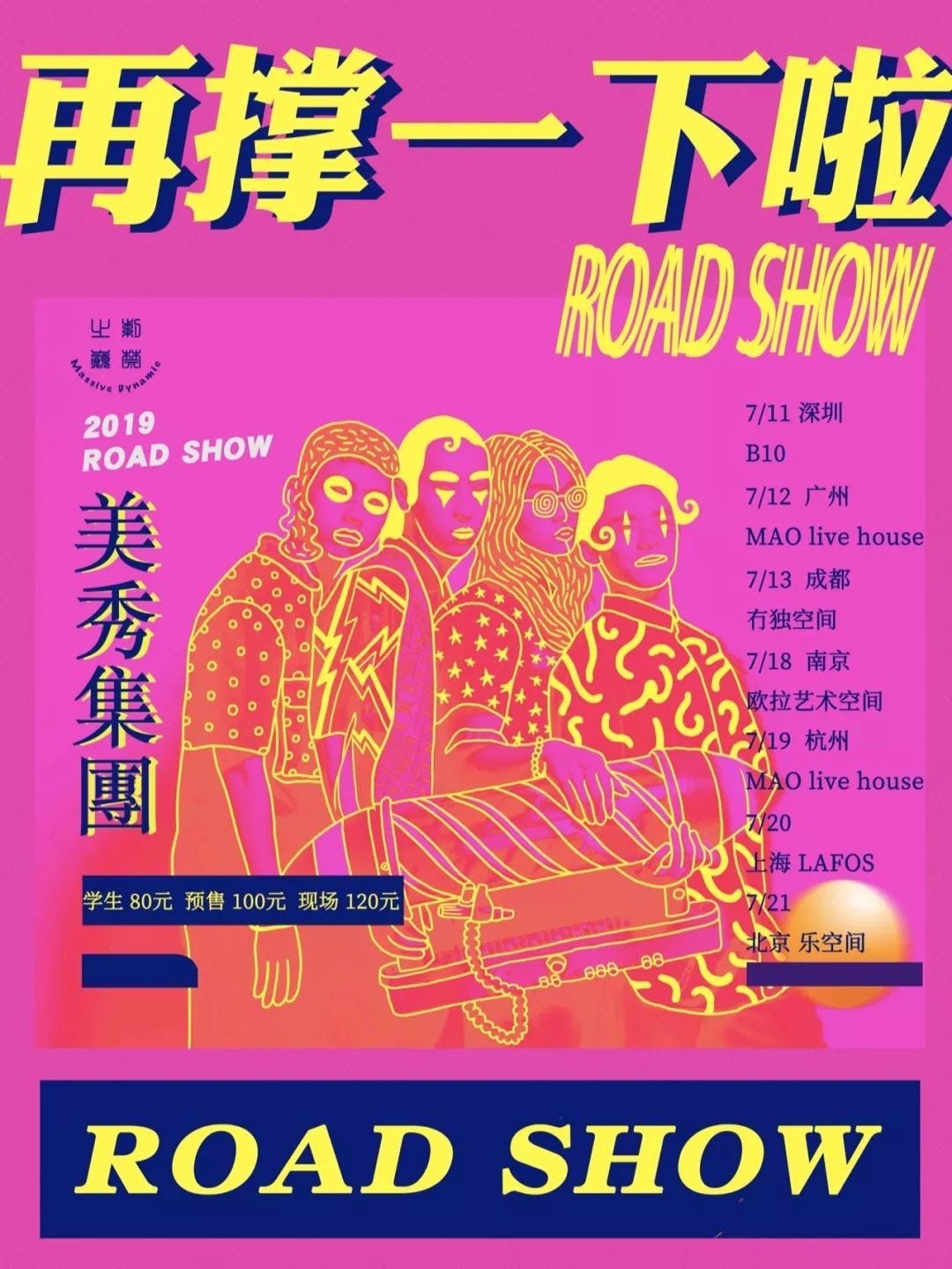
Nathanel: You have the historic precedent of A-mei, banned from touring China for several years after singing the national anthem during Chen Shui-bian’s presidential investiture. And you have artists such as Jolin Tsai or Jay Chou who make most of their money in China, and have thus to display a non-controversial Chinese identity in their songs.
The problem for indie Taiwan bands touring China nowadays is that, with new regulations, the cost of a China tour is becoming more and more expensive. And they can be blacklisted from one day to another.
What also interests me is the notion of language in Taiwanese songs. The major, most mainstream bands sing in Mandarin, but you have more bands using taiyu in their songs—can they perform in taiyu in China, and is there an audience for it? Again, I’m thinking of the last season of “The Big Band,” where you had Wutiaoren (五条人) and their impromptu song in haifeng hua, which is close to minnan and taiyu. But what really surprised me is the reception of The Chairs’ (椅子樂團) songs in taiyu. They were not doing great during their first few performances, but then they switched to taiyu and you could see that the audience was very receptive, like they were finally “singing their own songs” (a reference to Lee Shuang-tze ahah) and expressing what’s in their hearts. That’s why I think even taiyu songs can trigger a profound emotional response in Chinese audiences.
After this taiyu performance, there was this “professional music lover” (专家乐迷) saying that as Fujianese himself, he was moved to tears by The Chairs because it reminds him of home, to hear this familiar but repressed language. Again, I think the Freudian concept of Unheimliche is particularly adapted to this kind of reception—familiar but strange at the same time.
Simon: I wonder if perhaps Taiwanese bands offer a way for regionality to exist in a way that it cannot in China, due to language standardization, etc. The 尺口MP demonstrate how the aesthetics of regionality seem to be quite influenced by Taiwanese artists, even if the band sings in Fuzhou dialect, rather than minnan/taiyu. Their first release bears the heavy imprint of garage rock-era Sunset Rollercoaster, and as Krish has previously written, the aesthetic is extremely laidback. Yet they’re also devoted to a highly specific seam of nostalgia for their hometown. Perhaps Taiwanese bands break the myth that everything must be in putonghua to have a wide appeal?
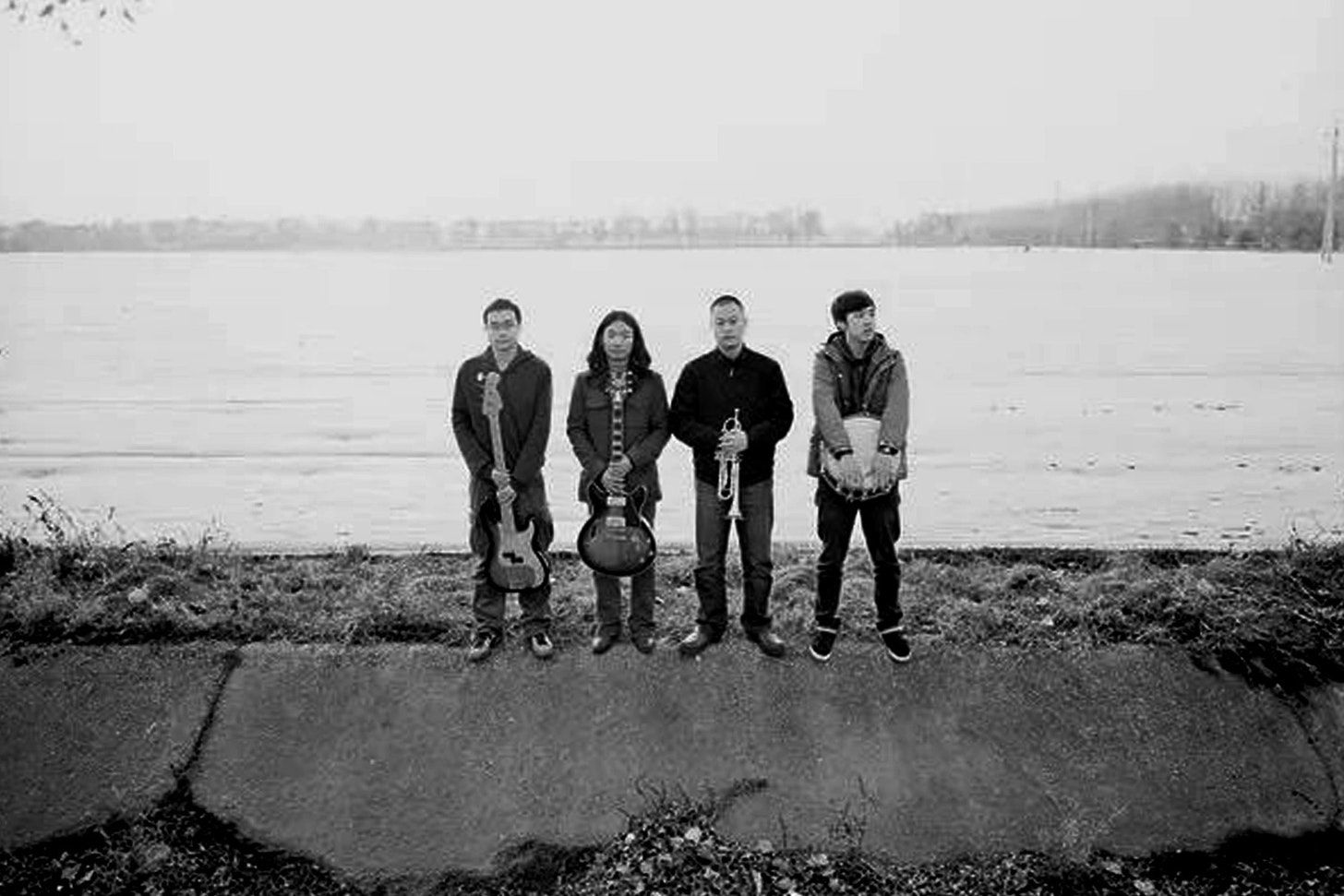
Brian: Some Chinese indie bands become highly popular in Taiwan—Omnipotent Youth Society or Wutiaoren are prominent examples that come to mind. I’ve also heard someone like Fish Lin of Community Service (勞動服務) expressing admiration for politically-minded Chinese bands and rappers. The way he phrased it specifically was that he felt that they were the real deal, while he was less so by comparison, given the risks they take.
Nathanel: My own experience in the Taiwanese punk sphere was quite interesting regarding Chinese punk bands. I think Wuhan punks SMZB’s (生命之餅) 2018 tour in Taiwan was a turning point in the relationship between the Chinese and Taiwanese underground. It was organized by several groups, among them Trapped Citizen (愁城), one of the most interesting punk/alternative collectives I have seen. It was complicated to organize as you might suspect, visa-wise and all. But they managed to make it happen—the concert at Pipe was supposed to have been awesome, with Taiwan punk legends 88 BALAZ opening the show. There’s a video of SMZB singing “Great Wuhan” (大武汉), and you can see the response. I think it resonated with them, disrupting the usual representation of what a Chinese band is supposed to be, to say. This tour had a lasting effect, people still talk about it, there was a special issue of the fanzine 场景报告 (“Scene Report”) published by Trapped Citizen featuring an interview of Wu Wei, and another article on SMZB in White Rabbit Records’ magazine. More recently, in January 2021, during the “Anarchy in Taiwan'' punk festival at The Wall, the band Mr. Noproperty (無先生) covered “Great Wuhan” and everybody was cheering and singing along:
This relationship to Wuhan punk re-materialized during the early stage of the pandemic. When Wuhan was in lockdown, Trapped Citizen organized an event to support the Wuhan punk community. We had a WeChat video-call with Wuhan friends, and the people behind Trapped Citizen produced beautiful woodcut posters for the occasion. When The Big Band was airing in China, they also organized a screening of Joyside’s documentary Wasted Orient.
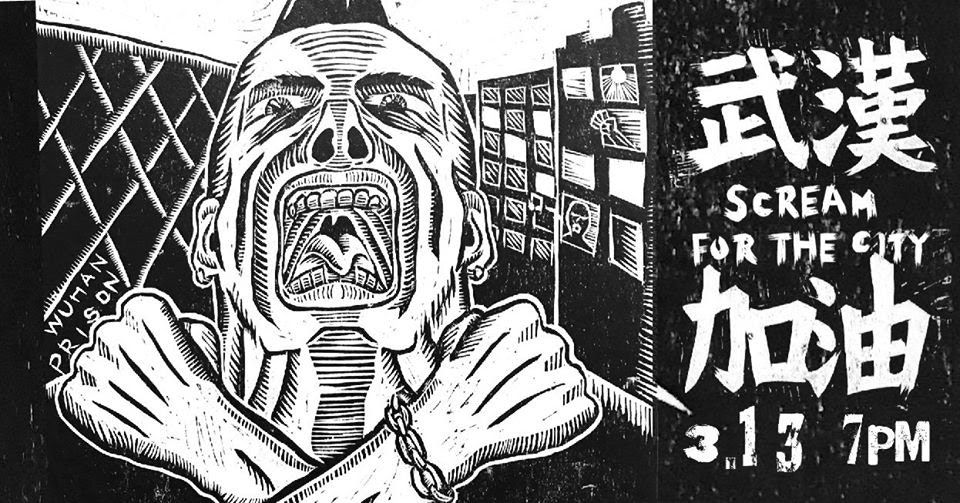
What interests me also is the representation, and sometimes the fantasy, about the Chinese underground in Taiwan. I’ve screened Wang Shuibo’s documentary on Wuhan punk several times in Taiwan together with Wang himself, and I was fascinated by the audience response. They were saying things like, “there are real punks in China, they have to fight in a very hostile environment in order to survive, but we can’t have that kind of punk in Taiwan, because who do you fight against?”
It’s discourse. This doesn’t represent the full reality of Taiwan punk, but it shows the fascination with the Chinese underground and the representation of Taiwan as a relatively stable and boring society—of course that’s not true, you have plenty of social mobilizations and anger if you look closer. You can also see this when you talk to Taiwanese punk bands, a lot of them really want to go to China and Wuhan, to see the scene with their own eyes. I think it also has to do with their politics, they’re very different from green-leaning bands like 拍謝少年 (Sorry Youth) or Fire EX. They despise the DPP as well as the KMT. Just listen to Accomplices’ (共犯結構) songs. It’s actually easier for them to connect with the Chinese underground on an emotional and political level. That reminds me of a poster during a punk festival in Taipei, which said:
“Fuck
sexism
Homoph-
obia,
racism,
DPP
& 黃偉哲” (the DPP mayor of Tainan who was criticized for his urban renewal policies).
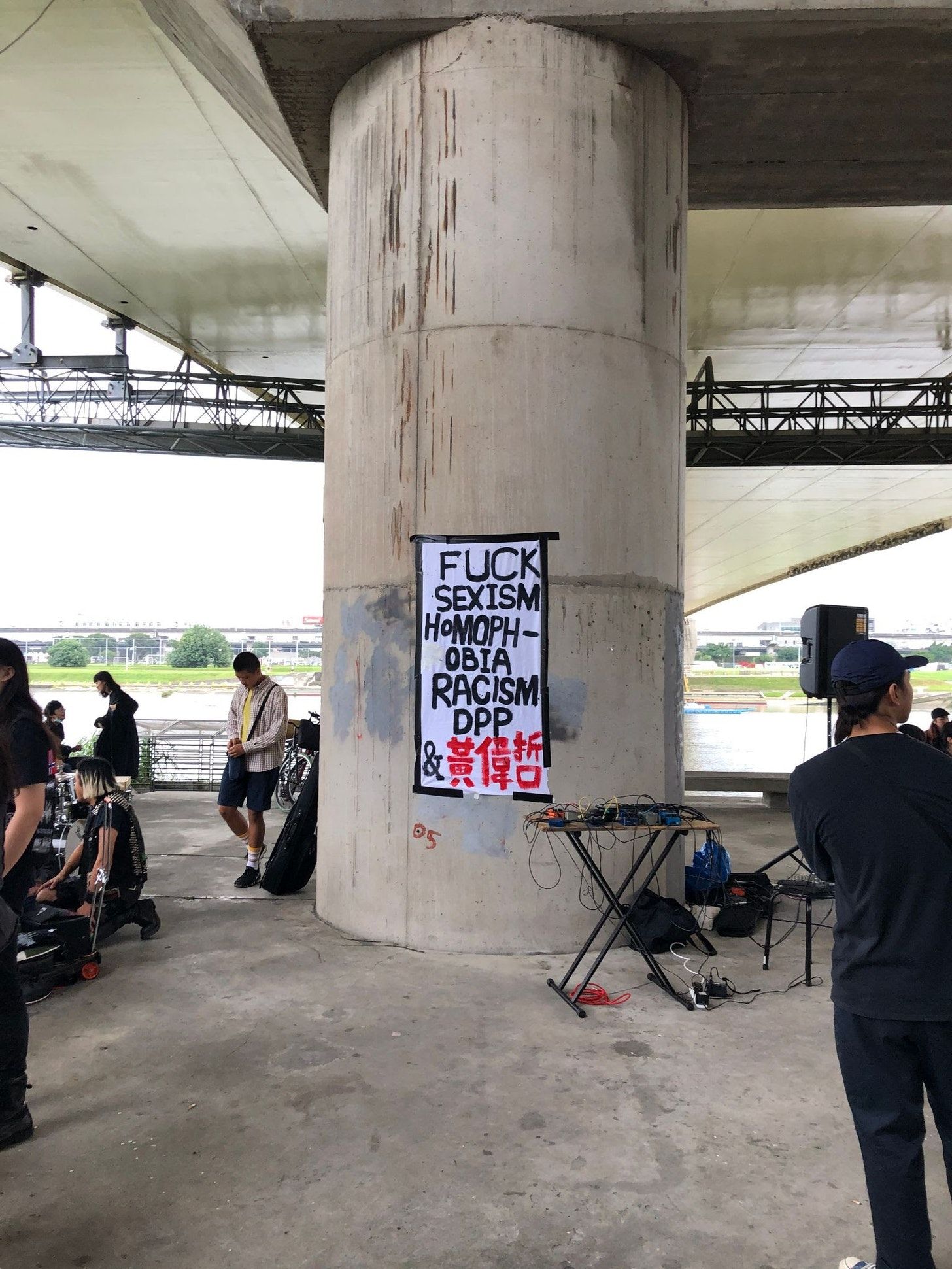
Krish: How do some people manage to strike a balance? To jump back to the mainstream, I’m thinking about someone like Wu Bai (伍佰), both a Taike icon (台客) and huge star in China.
Chen-yu: It has become increasingly difficult for artists from Taiwan to still “profit” from the PRC market without backlash, or to ust shy away from expressing their political stances (or have a pro-KMT outlook). I think exploring ways to Southeast Asia and Japan is a valiant attempt. Recently, I had a chance to visit Taipei Music Center’s Cultural Cube. Its exhibition hall is the first of its kind to open in Taiwan dedicated to popular music. As glamorous, educational and exciting as it is, I do think that we Taiwanese— especially the generations that witnessed the heyday of Taiwan’s music taking over the PRC market— have this belief that we are, or at least used to be, the music centre of Sinophone world (“華語流行音樂中心”). The problem is, we never really had the lasting infrastructure to navigate markets other than the PRC. Rock Records (滾石唱片) might have expanded to other countries (including Thailand, South Korea, Japan and so on) for a bit, but this was never a common practice. I think the first thing that we need to confront is that the need to export music to locations outside of the PRC has not been something the Taiwanese music industry was equipped for. So we do have a lot of work to do to catch up.
III. Theories/Speculation/Futures
Simon: Part of what we want to get at with this episode is whether the current situation actually holds the potential to spread some positive ideas.
Does the DIY ideal that music and art can open up new ways of thinking for listeners and community members still hold? Or are things too commercialized (and China too hegemonic) for this type of exchange to take hold—might it actually have the opposite impact?
Chen-yu: At this moment, I think the positive idea we can have is to encourage musicians to think about markets other than the PRC—to think outside of the box, to think big, and to actually try to develop networks and connections in other territories. They will have to take risks if they intend to do so but developing a career too dependent on the PRC market has become equally, if not even more risky.
We are living in a world where these identifications— such as 台獨 (taidu, pro-Taiwan independence), pro-China or 辱華 (ruihua, to insult China)—are fluid and in flux. One day 小S can be a model entertainer, and the next day she is the one to blame. These dominant narratives have political implications and impact audiences; the need to create a unified and homogenous “Chineseness” has increased. On a positive note, even though many entertainers are at the receiving end of backlash, I still believe some listeners will reflect and make their own judgements, like in all other markets and territories. Eventually, music might have the potential to encourage listeners to draw, redraw, and renegotiate these boundaries—politically, and culturally.
Krish: For some bands, being boxed in by nationality/territory is itself a trap, and creating the space for artists to move beyond being just a “Taiwanese band” or “Chinese band” (while acknowledging the pride and belonging that comes with it) feels crucial.
It’s also important to point out here that while we’re talking about changes in China, the scene in Taiwan isn’t static by any means...
Lev: Yes, and context matters when asking if Taiwanese take pride in their indie music scene. Recently people seem more down on the band scene as rap and individual artists take up most of the mainstream. There are still bands that have broad pop appeal, but I know a lot of rock musicians feel like they’re a dying breed in Taiwan these days. That being said, plenty of new, talented bands are constantly popping up and blowing me away. The silver lining is there is always new music worth looking forward to in Taiwan.
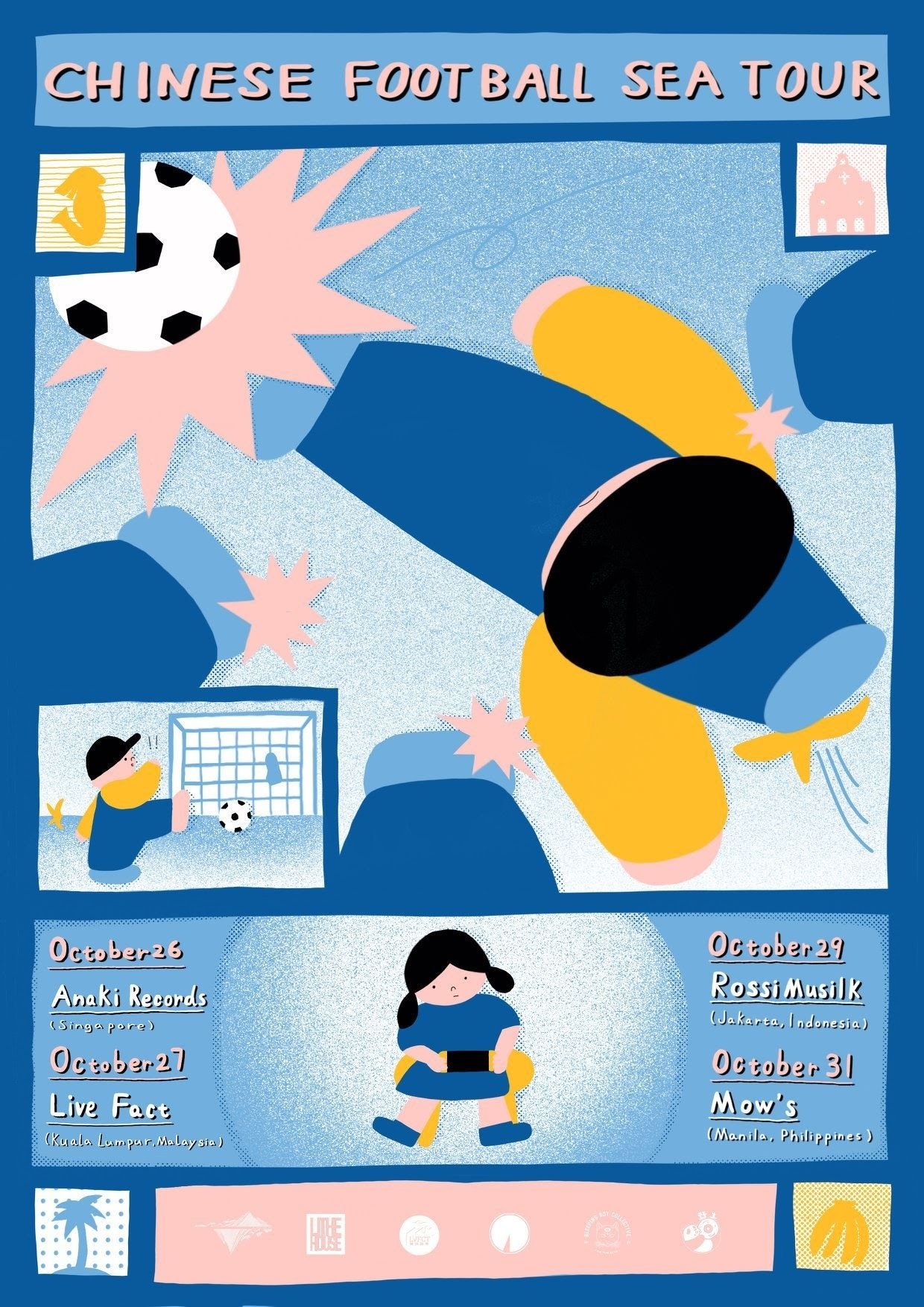
To give an example, since audiences on both sides of the Strait grew up on the same pop music, I feel like you’re almost as likely to hear a DJ mix a Elva Hsiao (蕭亞軒) or S.H.E. track into some club music at a party in Shanghai as you are at Final in Taipei. Is this a good thing, or is a false claim of ownership being asserted in the former scenario? Or, is approaching the issue like this simply too paranoid?
Ting: I've definitely felt this in terms of Guangdong/Hong Kong—I think a lot of us growing up in Guangdong, from my parent's generation to my own, do feel in a strange sense that Hong Kong music is ours in some way, just because it exists in such proximity and thrives in the sonic landscape. On an emotional level I don't want to interrogate that identification too much, but I think that memory does form the backdrop of current imaginations of Hong Kong.
Brian: Thinking of Sinophone (“Chinese-speaking”) circuits is a useful framework for evaluating this sort of phenomenon, since there’s a shared Sinophone cultural memory between kids from Taiwan, Hong Kong, and China in this sense—though these are not even relationships, nor are they always two-way. I wonder sometimes if the strong political affinities between Taiwan and Hong Kong are not only because of the shared “China factor,” per se, but because many young political people are around the same age, grow up consuming each other’s cultural exports, and that creates a sort of affective nostalgia for the other—sometimes without ever having been to Hong Kong or China.
A lot of the throwback tracks I hear in clubs leverage this sort of affective nostalgia. Interestingly enough, that’s a period in which tensions between Taiwan, Hong Kong, and China weren’t as strong, as well as before the young people of today were thrown into harsh economic and political realities—a period in which a sense of broader pan-Chineseness was still possible.
The current generation of Taiwanese indie is primarily individuals that have grown up observing the political and economic rise of China. There’s some concern about what the next generation might look like, since they’re people who have grown up only with China having always been more economically larger and prosperous than Taiwan. For example, there’s the fact that bands like Lao Wang (老王樂隊) sing with an unusually Chinese-sounding accent, which I think has pushed the band to appear at political events to avoid accusations of being pro-China or whatever. Even No Party for Cao Dong are sometimes seen as singing with a somewhat Chinese inflection.
There’s likely to be anxiety regarding this in the future, along with the incorporation of Chinese terms into Taiwanese vernacular, like saying 視頻 instead of 影片. Exchange of vocabulary and loanwords is natural, but it’s bound to cause anxieties about identity around this.
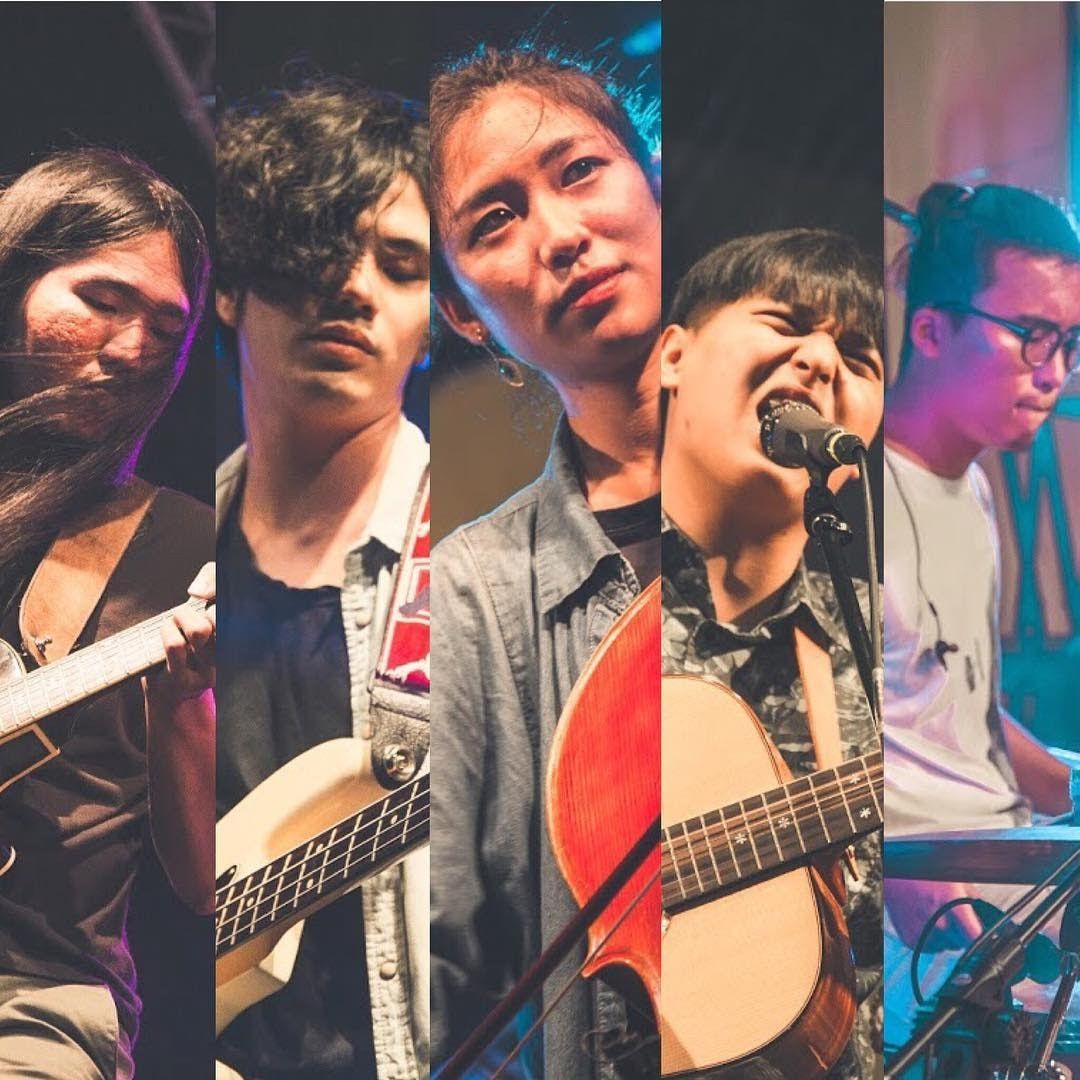
On the flipside, I also wonder if leaning too much into Taiwaneseness will be seen as something of a cliche, too, as exaggerated taike-ness. DJ Didilong (whose work has also drawn on the sort of Sinophone affective nostalgia I mentioned) might be an example of this. You increasingly see this sort of playing up Taiwaneseness or use of retro nostalgia in artists who straddle the boundary between the indie and the mainstream, like 9m88’s collaboration with Mars Ma, and I think the more explicitly indie types might react against this.
Nathanel: Totally agree. I think Andrew F. Jones’ notion of “circuit listening” is a very useful one—understanding the dynamism of local mediation of global cultures by thinking of “circuits” that light up simultaneously at different nodes.
He doesn’t use the term “Sinophone” in his work for different reasons, but there is something like a circuit between all the different hubs of the Sinophone world and the diaspora. There was a Cantopop/Taiwanese Mandopop circuit since the 1980s, people singing Beyond and Teresa Teng in KTVs across Hong Kong, Taiwan and China, Bobby Chen singing “One Night in Beijing”, Faye Wong circulating between all these different places and musical genres. But are we experiencing a new era of the Sinophone musical circuit? Sometimes you have the impression of a closed-circuit, as Brian said, with the retro nostalgia and the closure of Chinese musical borders. But I’m still hopeful, I think that marginal circuits, such as the one between the Wuhan and Taipei underground, may prevail in the long run.
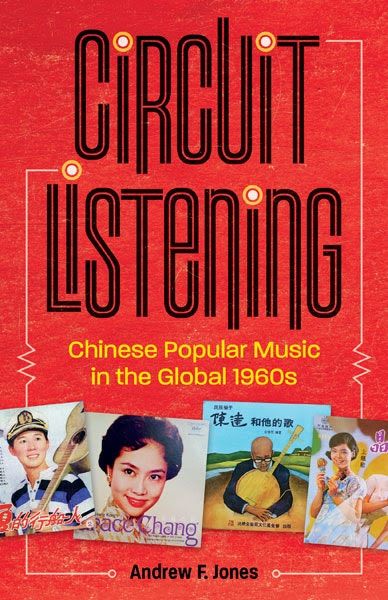
Krish: A small aside, but the idea of “circuits” is also useful in parsing some of the early-Internet BBS-to-Douban era influences on the PRC musical underground that, among others, created significant fanbases for bands like Hong Kong’s My Little Airport (this can be a whole separate Chaoyang Trap episode!)
To close out, I wonder if there are any current examples that exist to guide us to what a better future might look like in the music scene?
Simon: I see something like the experimental-psychedelic-noise label WV Sorcerer Productions (巫唱片) offering a more positive model. It’s run in France by Nanjing-born musician ruò tán, and has released music by Taipei band Mong Tong. As Nathanel mentions, perhaps more marginal circuits, less oriented towards money, have the chance to be more equitable and foster more interesting work. At the same time, even though there’s nothing overtly political about Mong Tong’s music, it really captures for me what makes Taiwan’s underground so vital, and different from China’s—up till now much of their music and identity has been based on researching weird new age publications from Taiwan in the 80s and 90s. Equivalent material exists in China, but I can’t imagine a band doing something similar here—eventually you’d collide with the Falun Gong. So that line of thought is cut off, and somebody with similar interests here would likely create something just drawing on cliches of UFOs and psychedelia—actually making something more globalized and homogenous in the end!
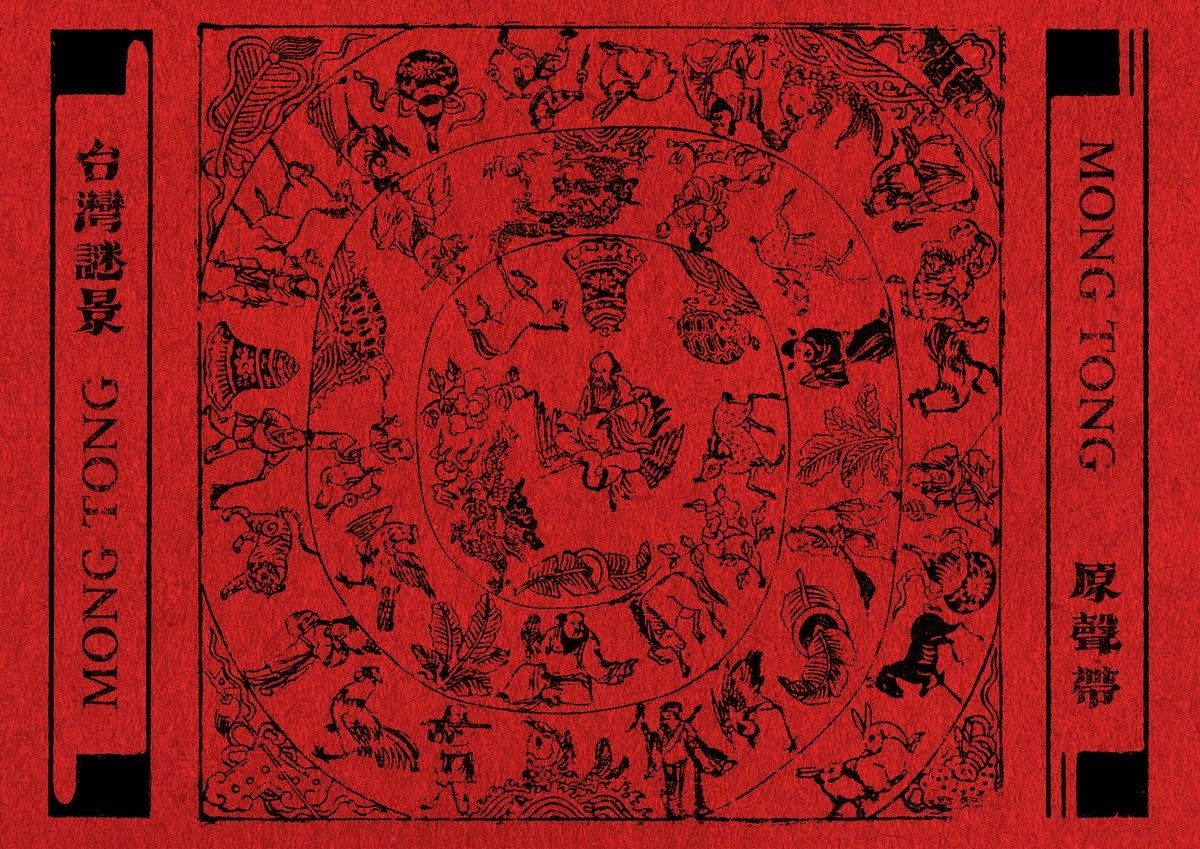
Brian: Apart from leaning heavily into Japanese indie music, there’s also been some efforts within the music industry to import Korean bands for a Taiwanese audience. That hasn’t been as successful to date, but given mainstream interest in Korean culture it does seem like something that would have a market.
Particularly where links to Japan are concerned, I think many strong ties develop through Taiwanese students that study in Japan. I’m always surprised how many indie spaces there are that incorporate a strong element of fascination with Japan—say, Senko Issha, The Bar, Mangasick, Sanchoya, and a few others just off the top of my head. There’s nothing comparable for other contexts, you won’t find something like in-depth knowledge of Hong Kong indie bands as commonly, for example—though I wonder if the wave of migrants from Hong Kong will change things, with the emergence of new spaces run by them.
That hasn’t happened yet, but I wonder if it may.
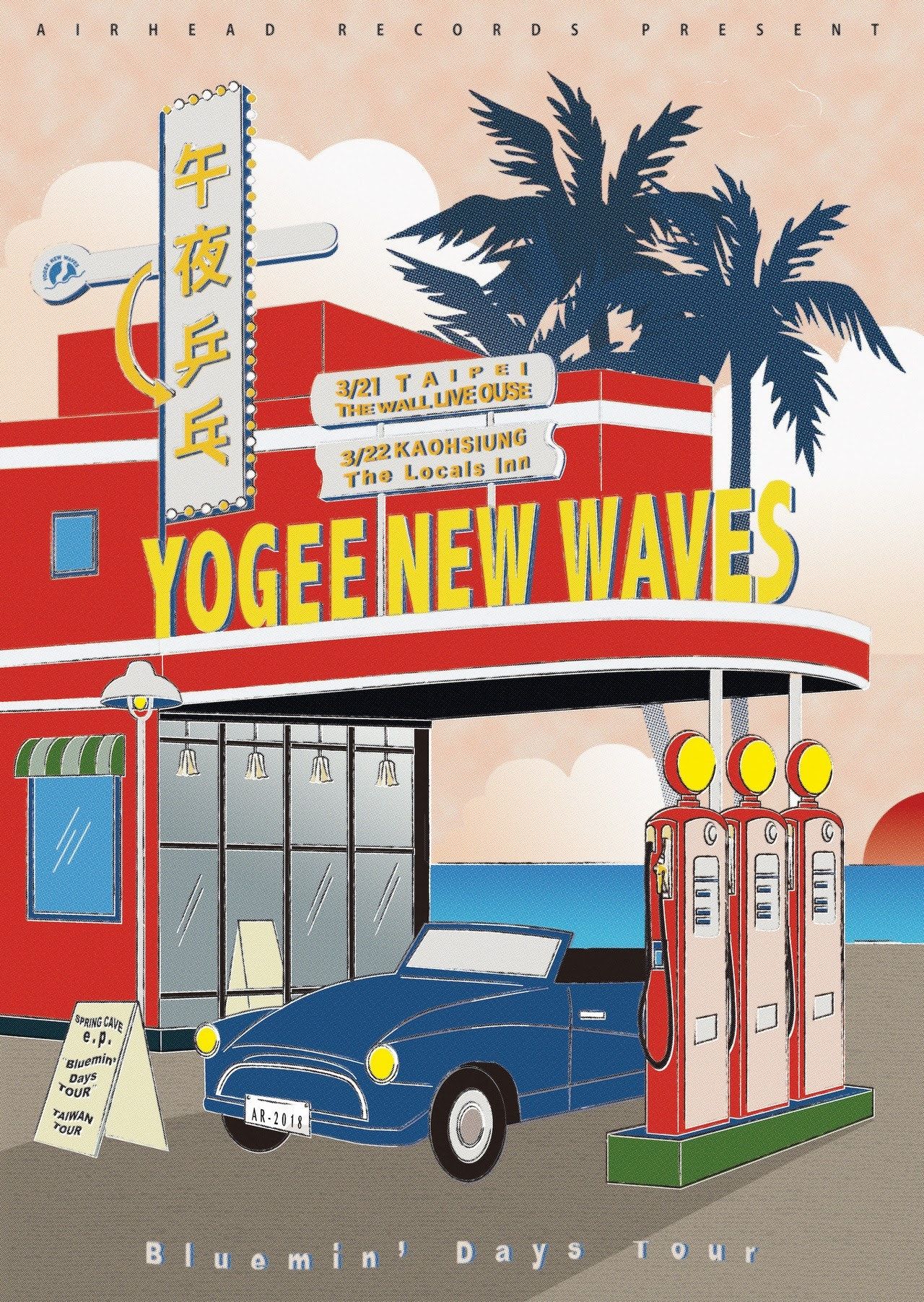
Miaoju: 2021 is special. Reportedly, 16 Taiwanese indie bands have recently performed in China. But I feel that these bands are cautious, staying low-key and speaking obliquely. At the same time, few of these bands' tour schedules in China have been announced within Taiwan. Even if these tours are successful, they will not talk about it in Taiwan. Even if fans at home know that these bands are currently in China, they don't pay special attention to it. There seems to be a tacit understanding here: no one will talk or comment because they know those bands need the China market for a sustainable career.
Of course, for many these tours can be a dream come true. It will be a pity if these dreams come attached with different levels of compromise. Here, Taiwan’s creative freedom is its strength. It produces diversity, so I don’t think we should pin our hopes or expectations on a single band or few examples. Even if some choose a form of silence to work in the China market, “truth-telling” through music will remain. There will always be other bands and musicians who continue to express, critique, and create great works. We should believe in that. Continue to listen, sing and support the artists you admire. That is my thought.
Au Chang is a designer, illustrator and tattoo artist. She is based between Taipei and Shanghai.
Simon Frank is a writer, editor, and musician in Beijing. He released the album So Dream It on Absurd TRAX this year. He misses Taipei.
Miaoju Jian is a researcher and indie music fan based in Chiayi, Taiwan. She writes both academic and media articles. She misses friends in Beijing, Shanghai and many places in China.
Chen-Yu Lin is International Development Manager for the Liverpool Sound City Music Festival and a popular music researcher wandering between Taipei and Liverpool. She wrote about the concept of “Chineseness” in Sinophone popular music for her PhD thesis.
Brian Hioe is a writer, translator, and DJ based in Taipei. He is one of the founders of New Bloom Magazine, which covers activism, politics, and youth culture in Taiwan.
Nathanel Amar is a researcher based in Taipei. He still has a blog ‘cause he was born in the 1980s.
Lev Nachman is a postdoctoral fellow at the Harvard Fairbank Center and a music nerd who spends too much time making playlists but forgets to post them for @TaiwanSongADay
Yan Cong is a Beijing photographer now based in Amsterdam. She is one of the founders of Far & Near, a Substack about visual storytelling in China. You should subscribe!
Tianyu Fang was a writer in Beijing. He is still a writer, but no longer in Beijing.
Krish Raghav is a comic-book artist in Beijing. He has unheimliche feelings towards Wuhan’s 小面窝, because they remind him of medu vadas.
Ting Lin is a writer now based in San Francisco.

